Measurement Worksheets
Comparing Heights
Year groups: 1
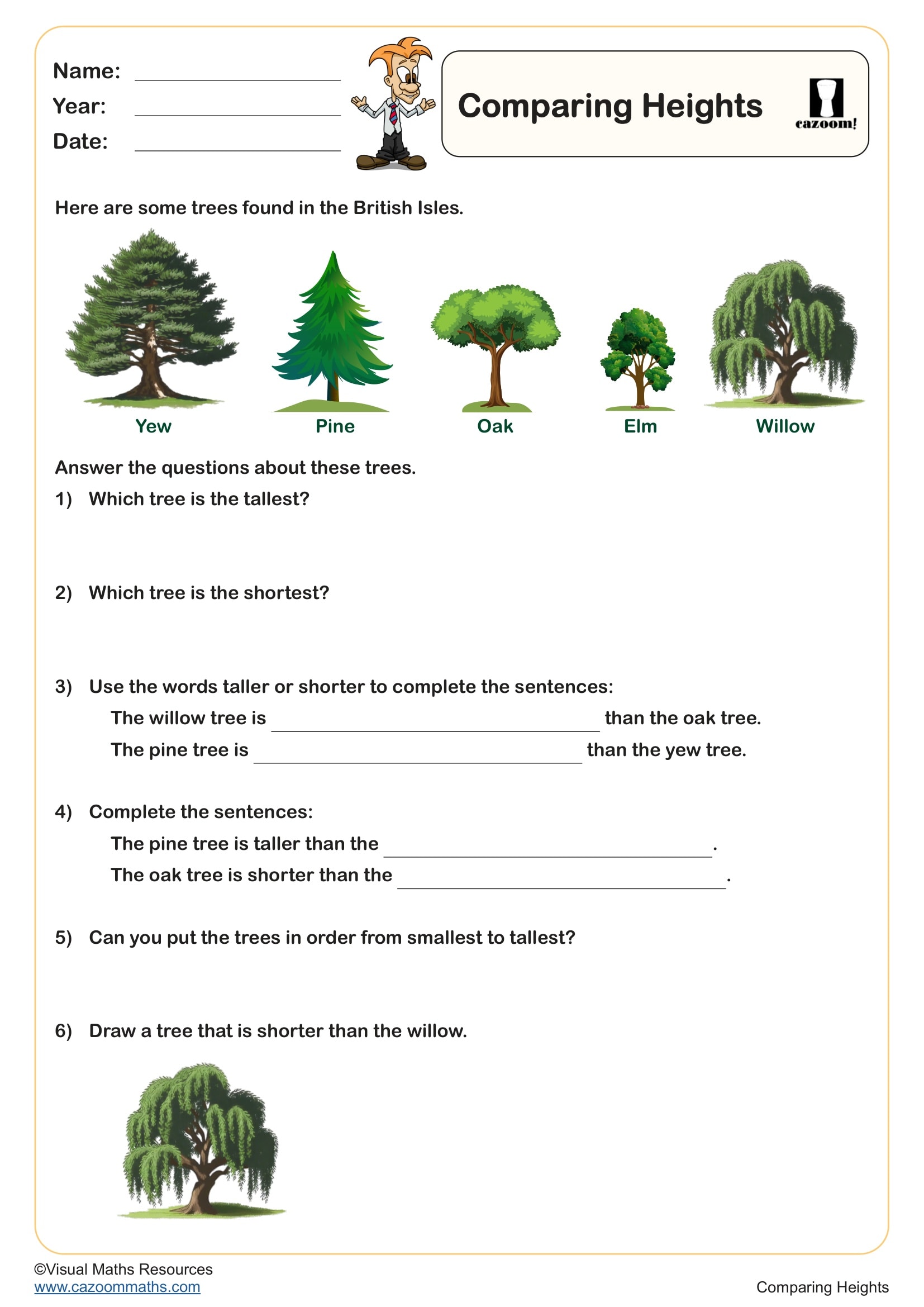
Comparing Mass
Year groups: 1
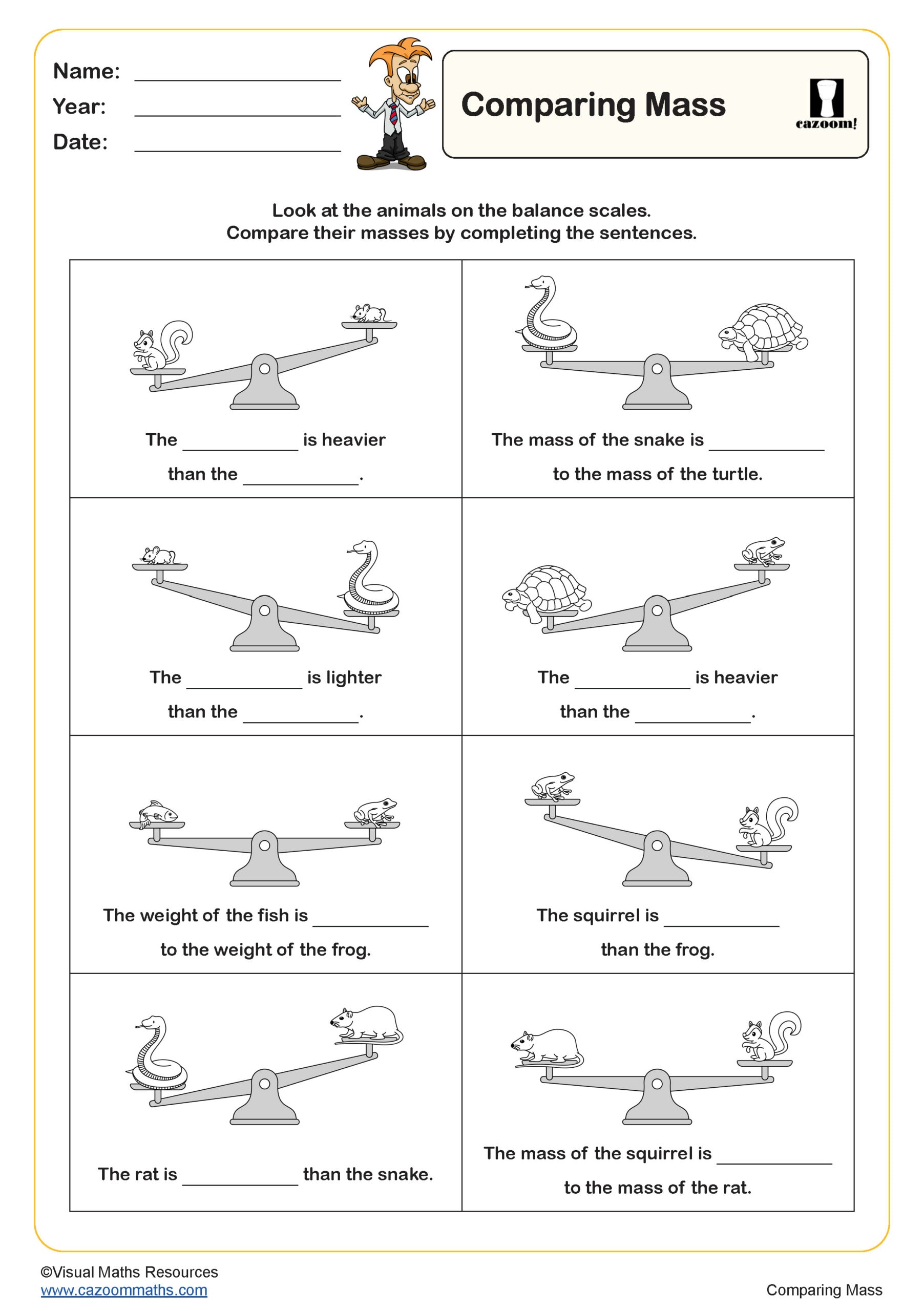
Comparing Volume
Year groups: 1
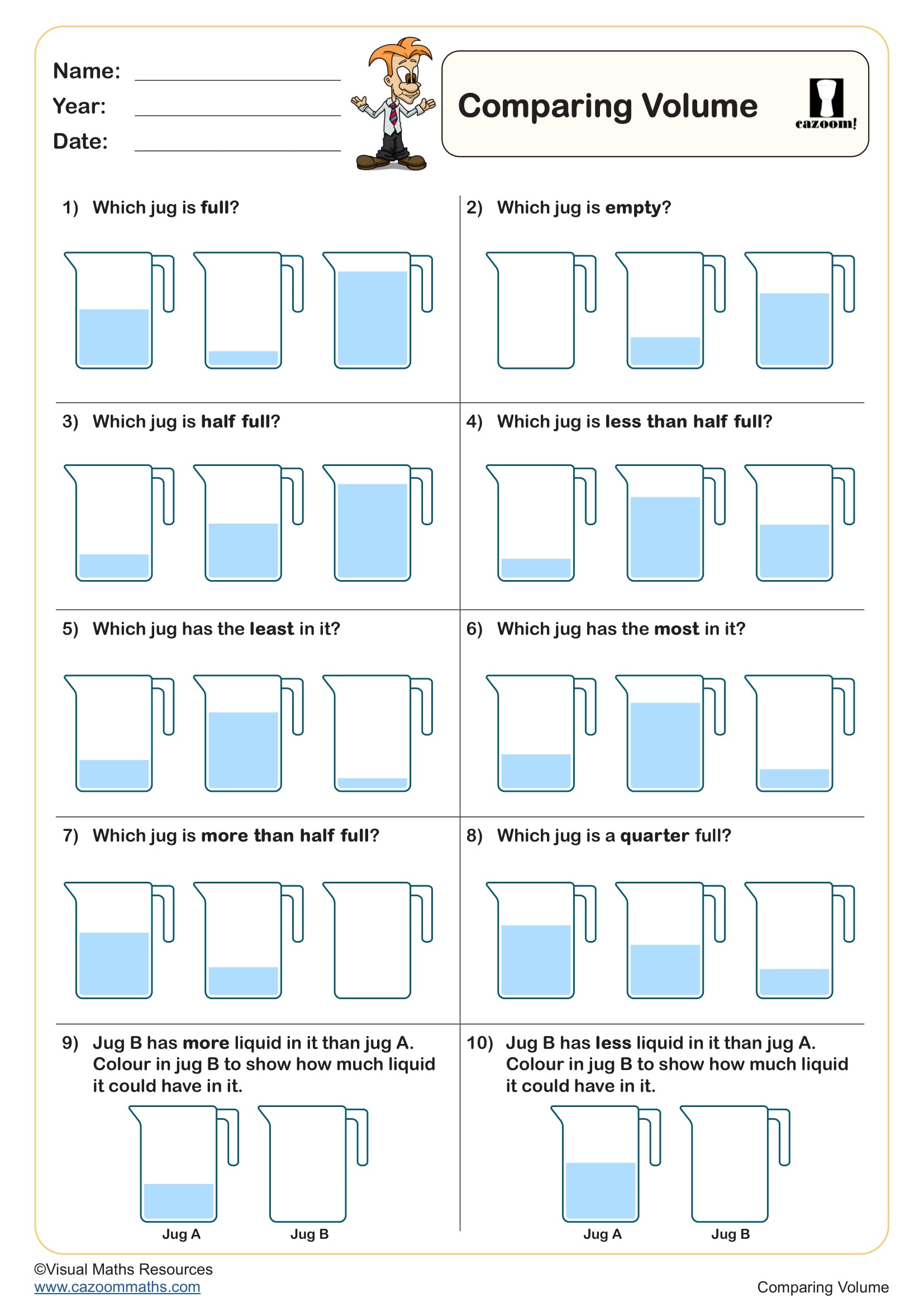
Measuring Length
Year groups: 1
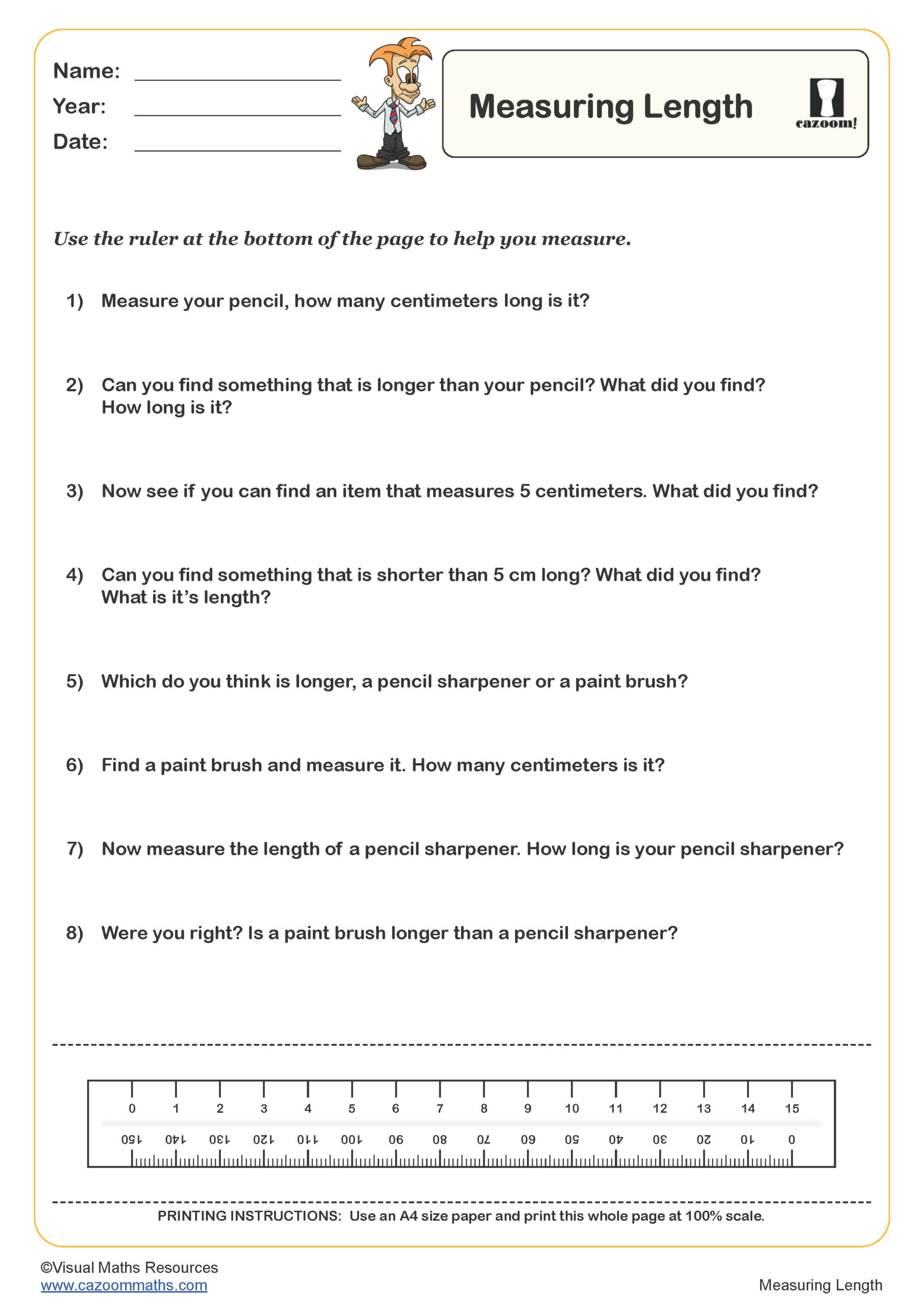
Measuring Mass (A)
Year groups: 1
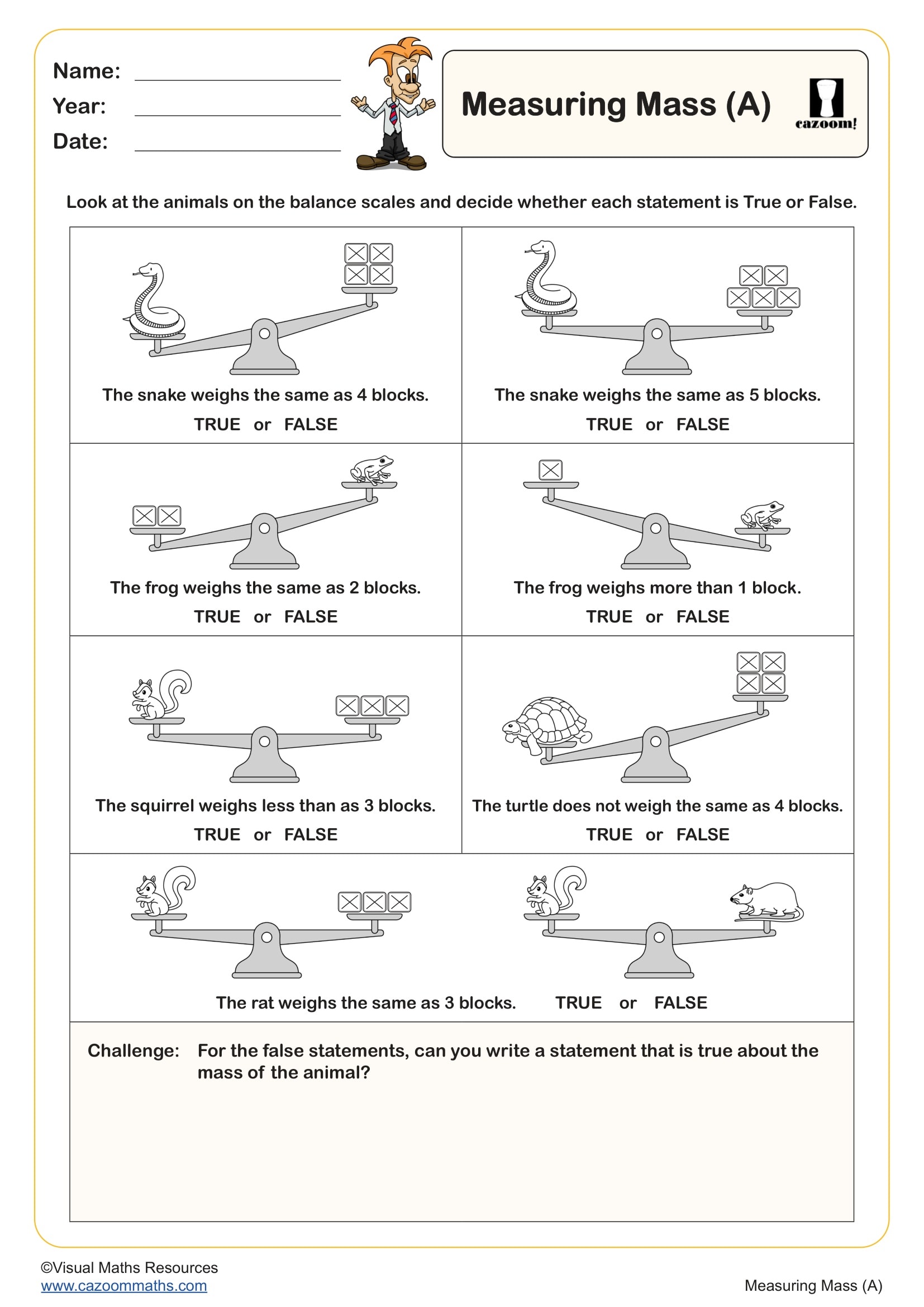
Choosing the Correct Units of Measure
Year groups: 2
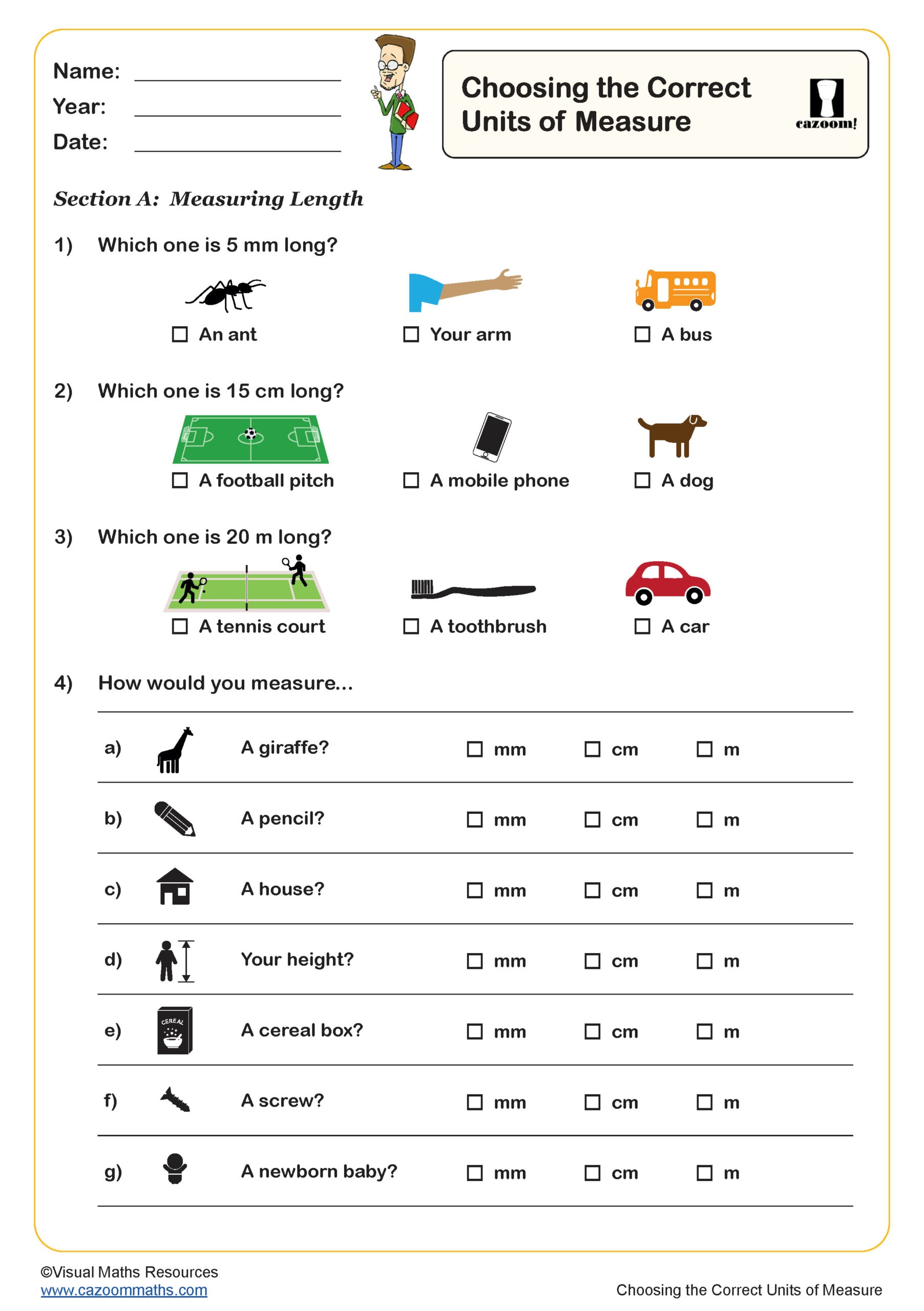
Compare Lengths
Year groups: 2
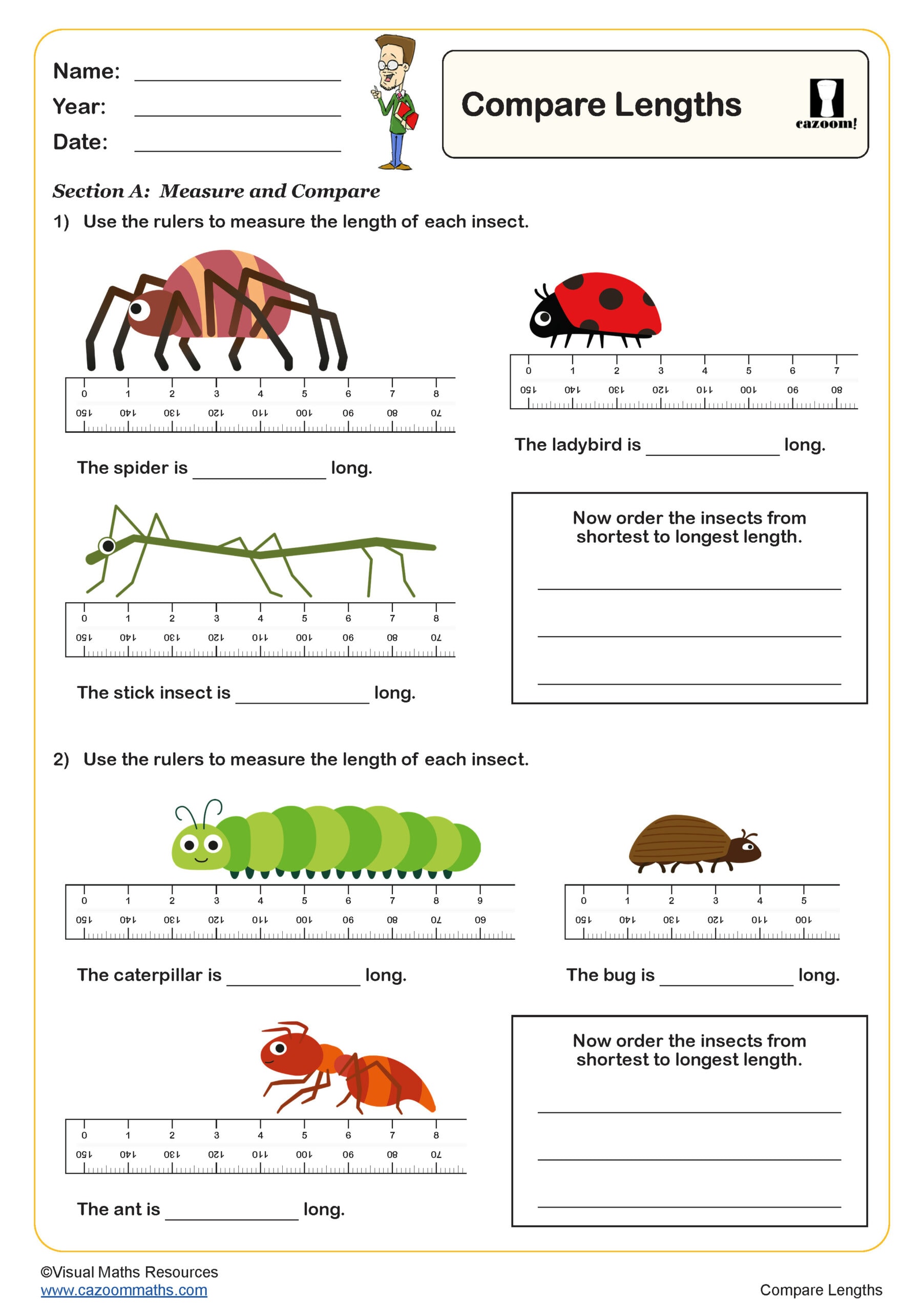
Measure Mass In Grams (A)
Year groups: 2
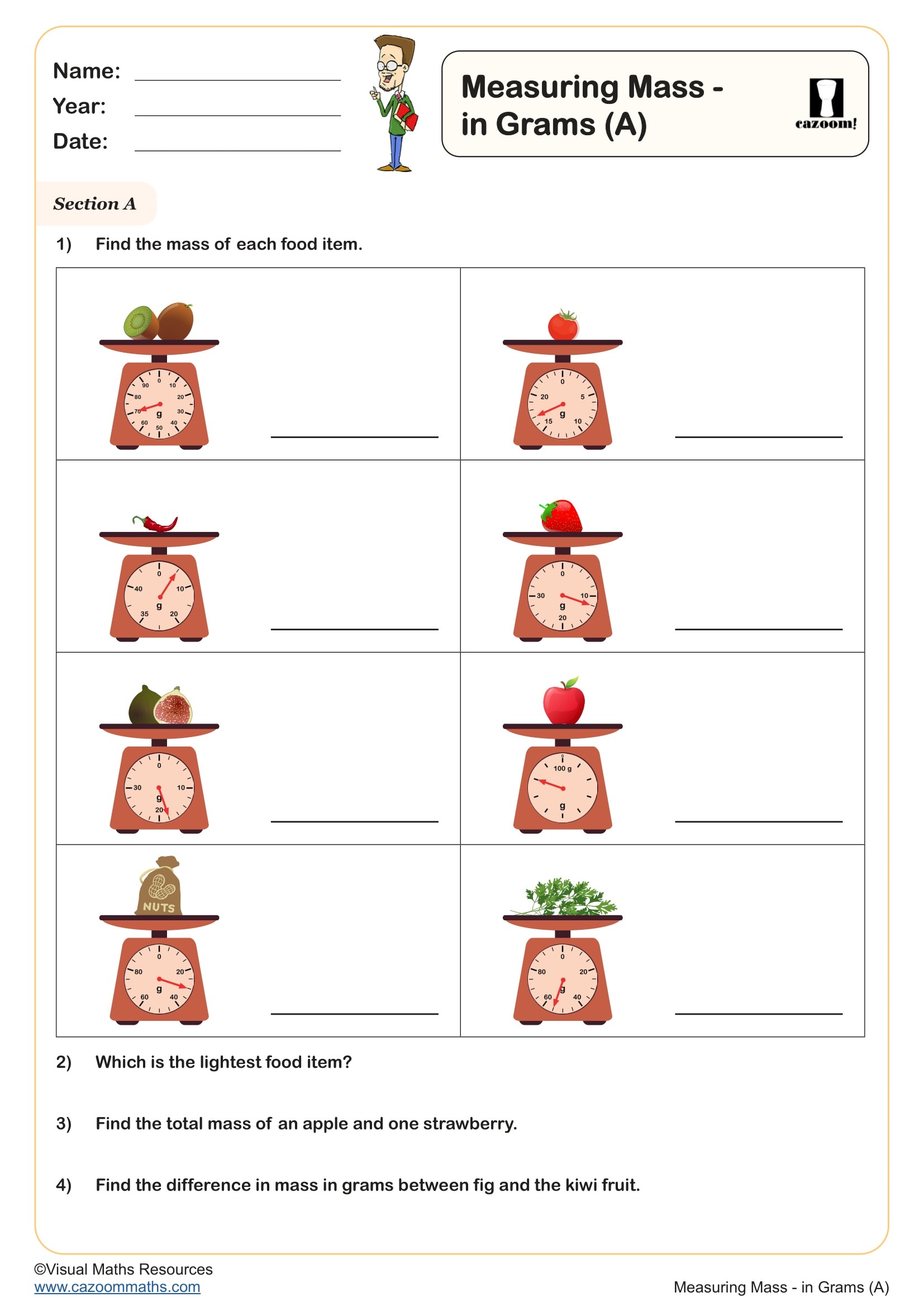
Measuring Mass (B)
Year groups: 2
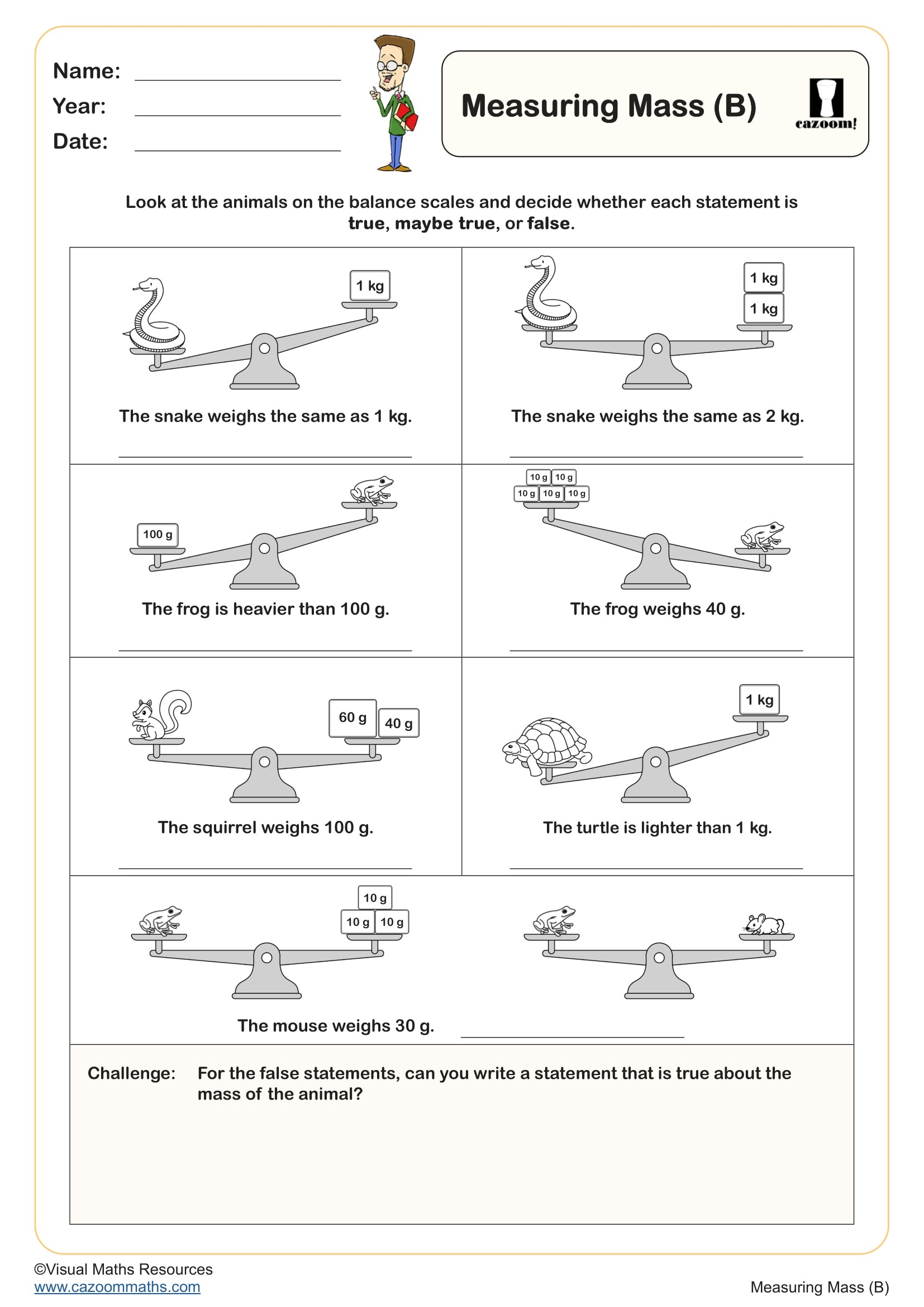
Measuring Temperature
Year groups: 2
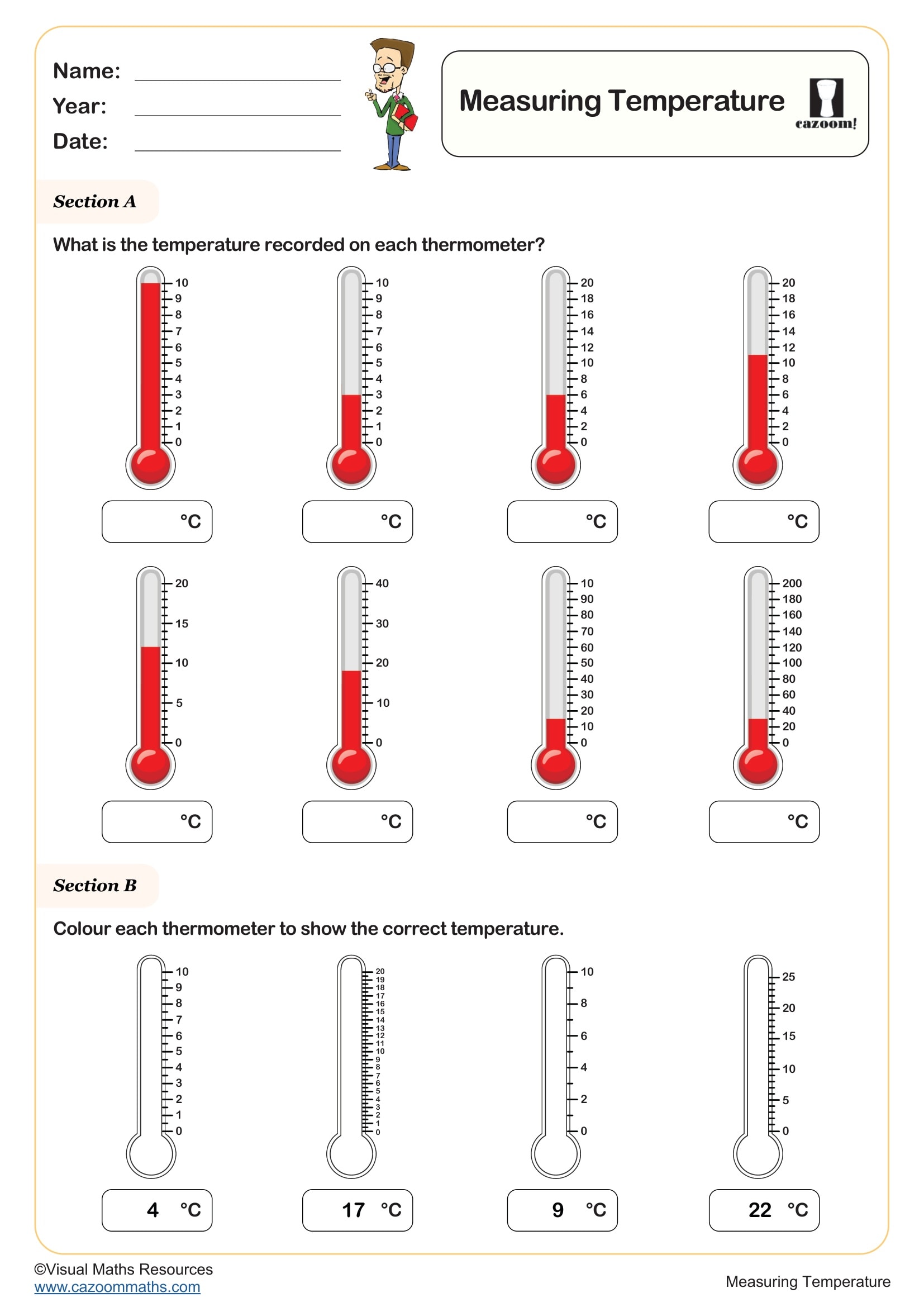
Measuring Volume (A)
Year groups: 2
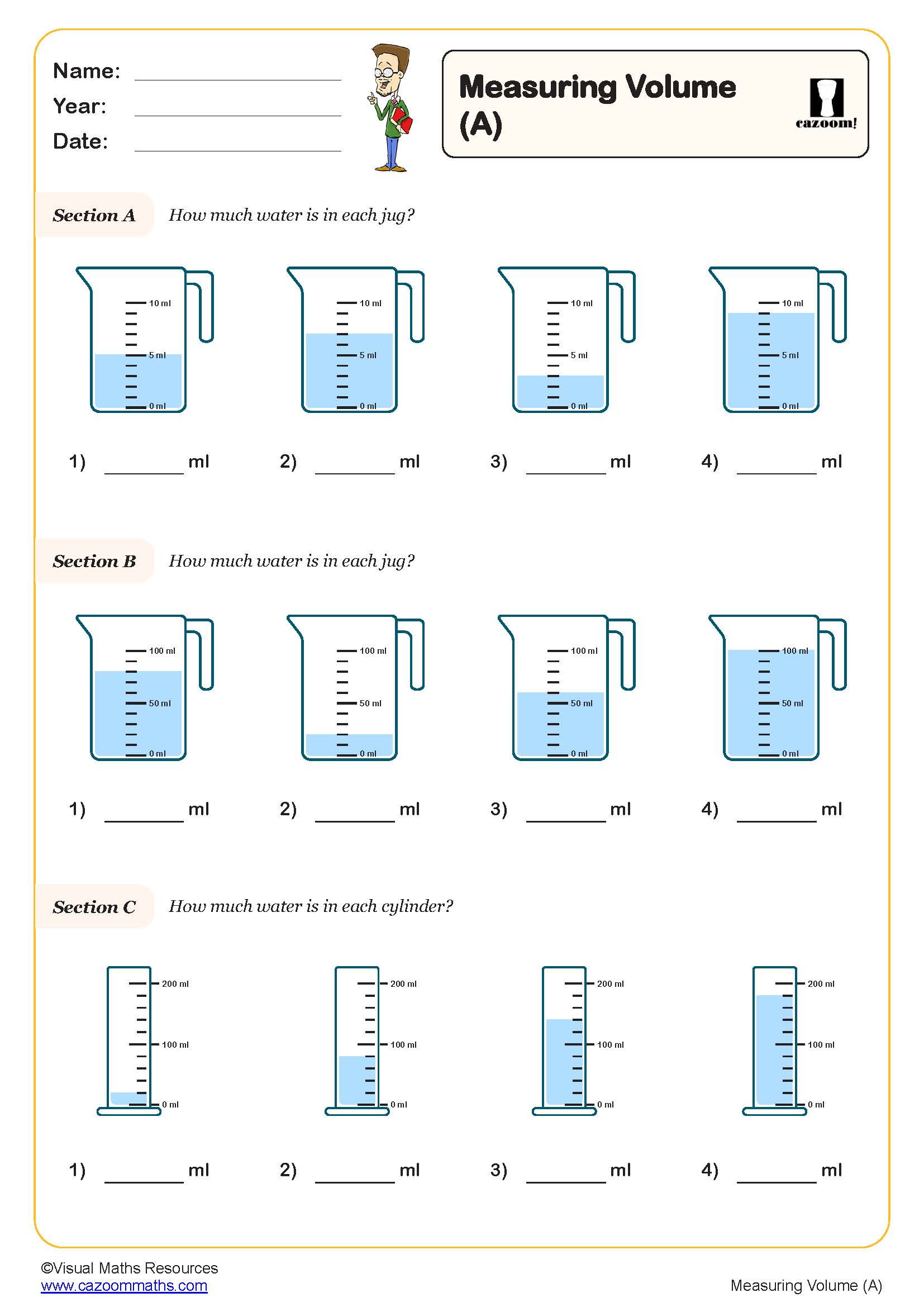
Measuring Volume (B)
Year groups: 2
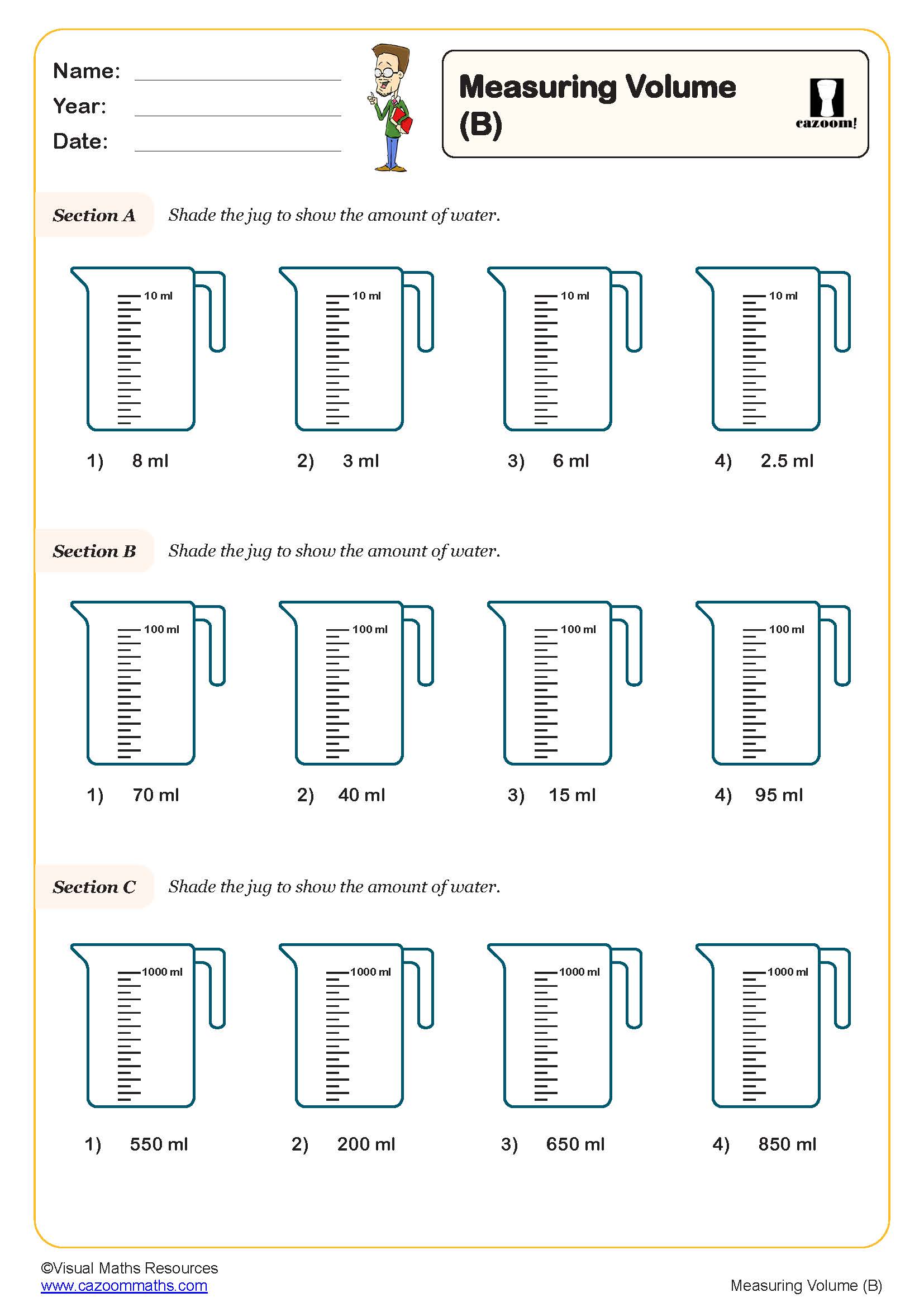
Adding and Subtracting Metres and Centimetres
Year groups: 3
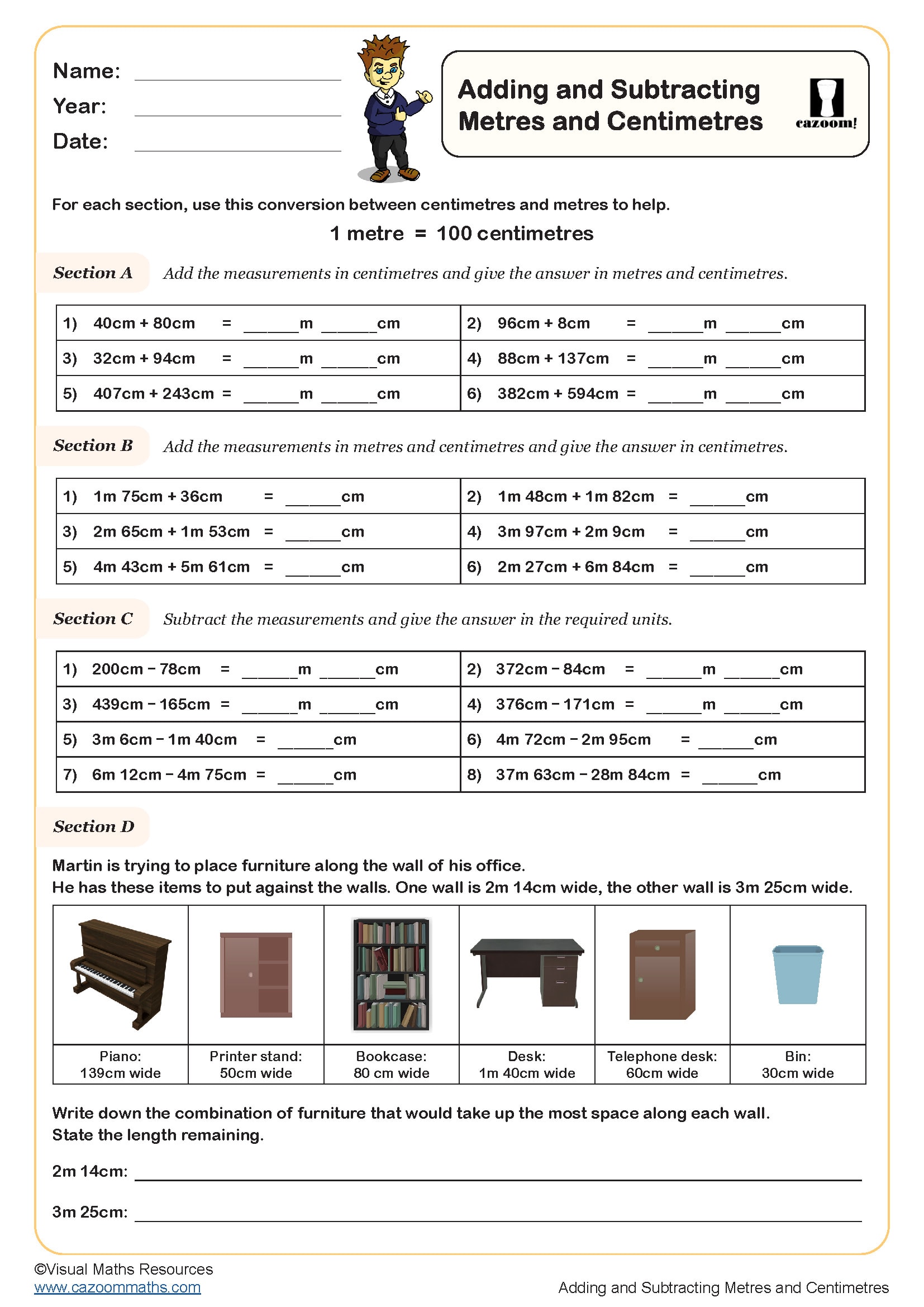
Converting Lengths - Centimetres and Millimetres
Year groups: 3
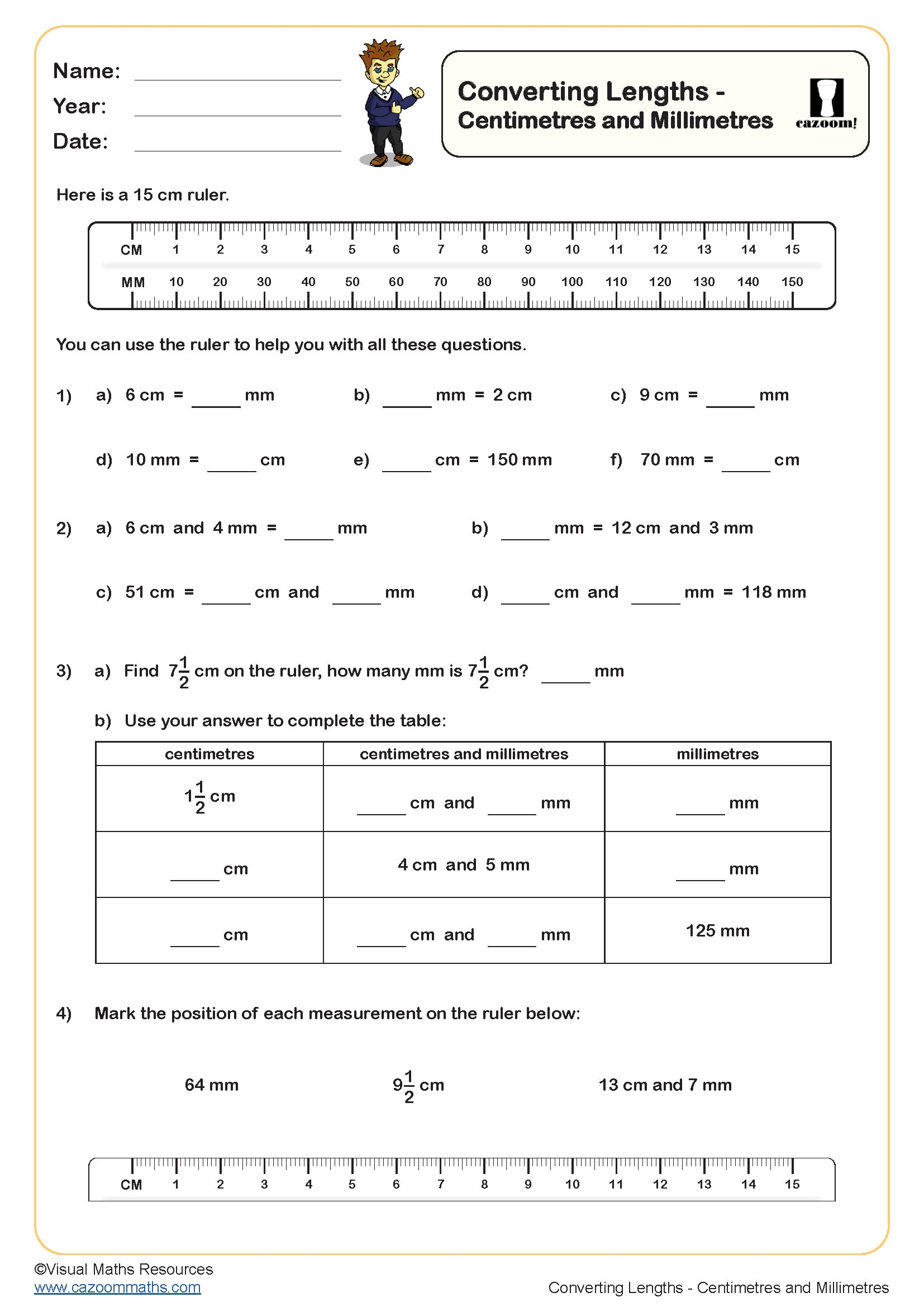
Converting Lengths - Metres and Centimetres
Year groups: 3
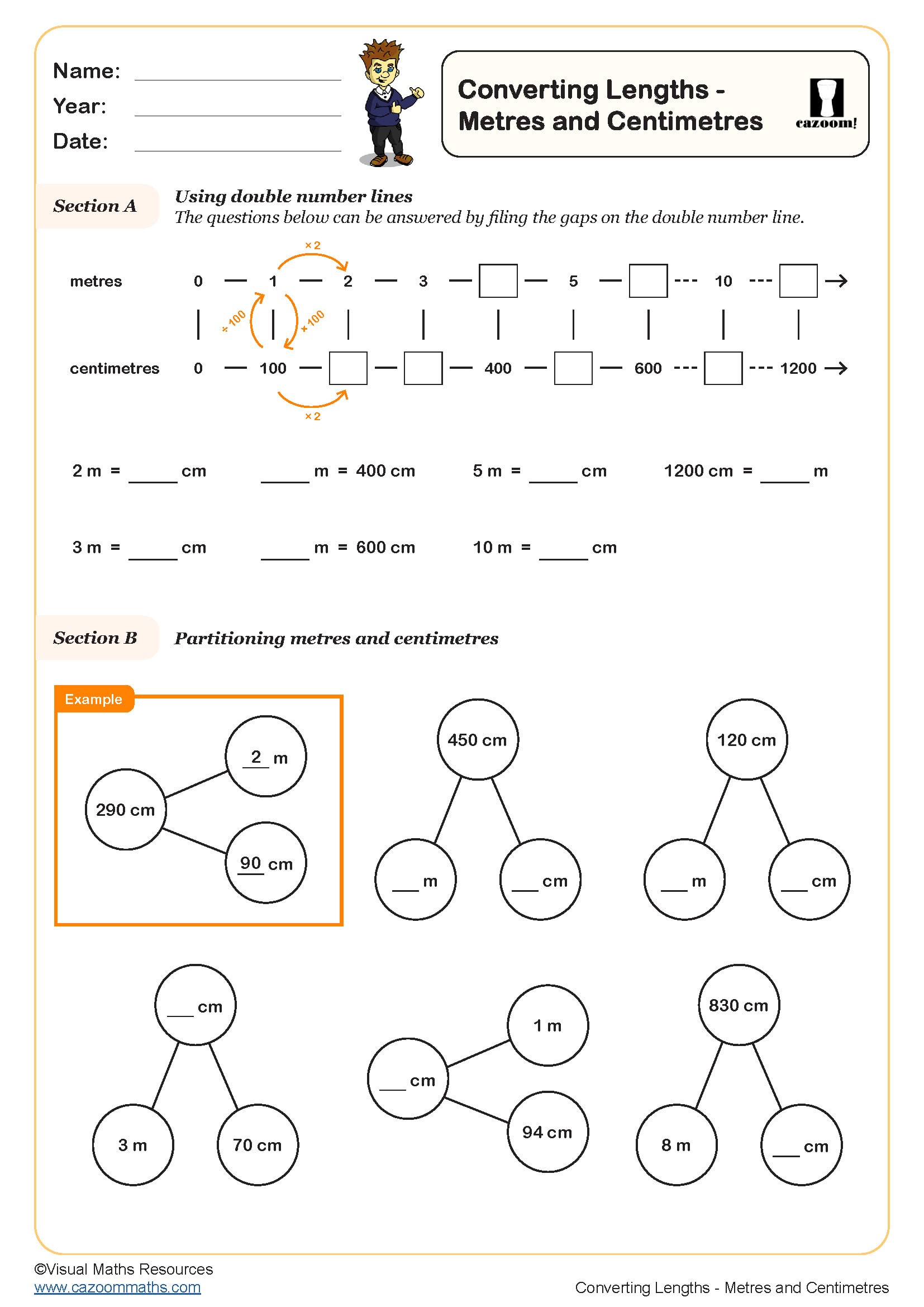
Estimating With Suitable Metric Measures
Year groups: 3
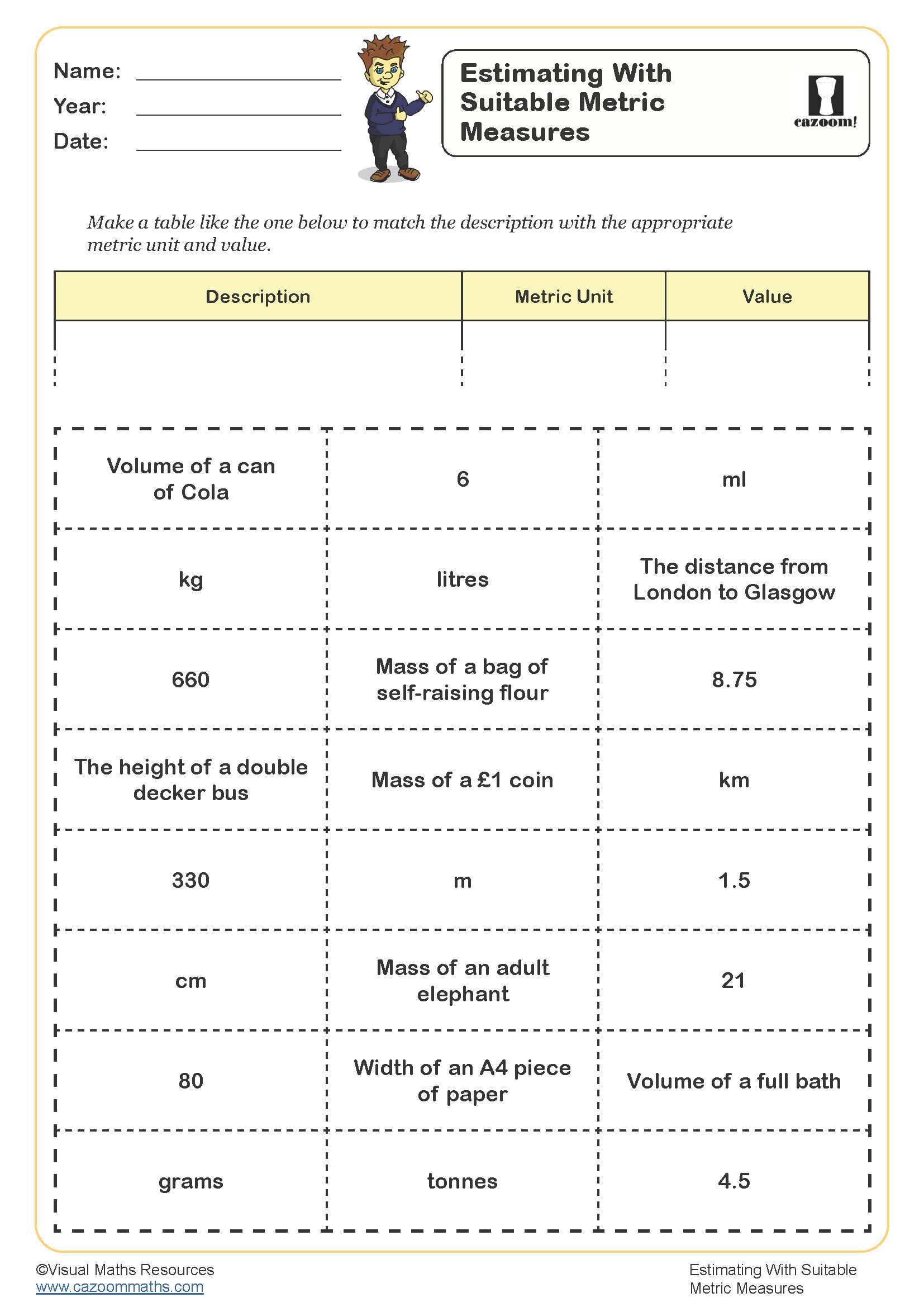
Making 1 kg
Year groups: 3
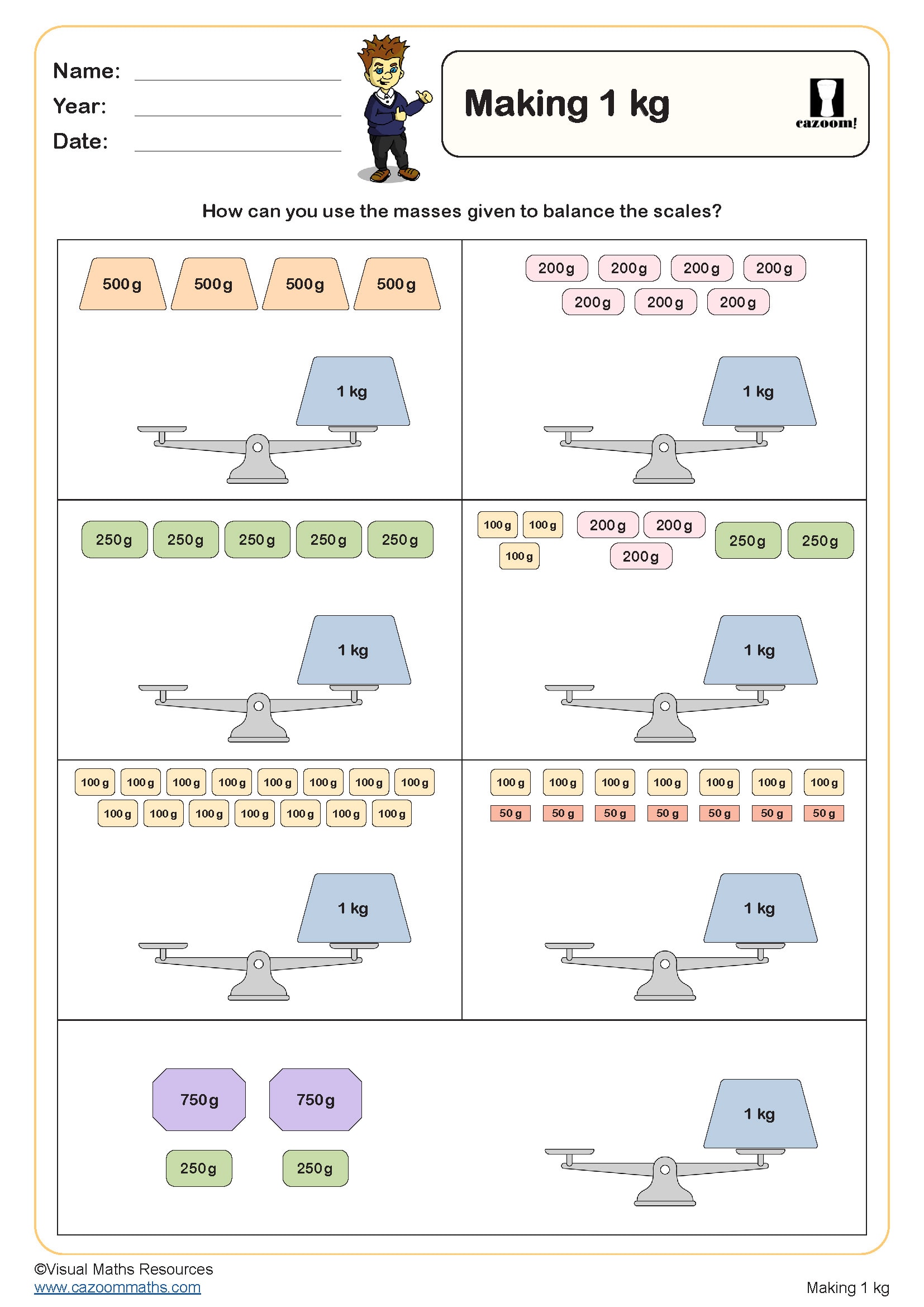
Making 1 L
Year groups: 3
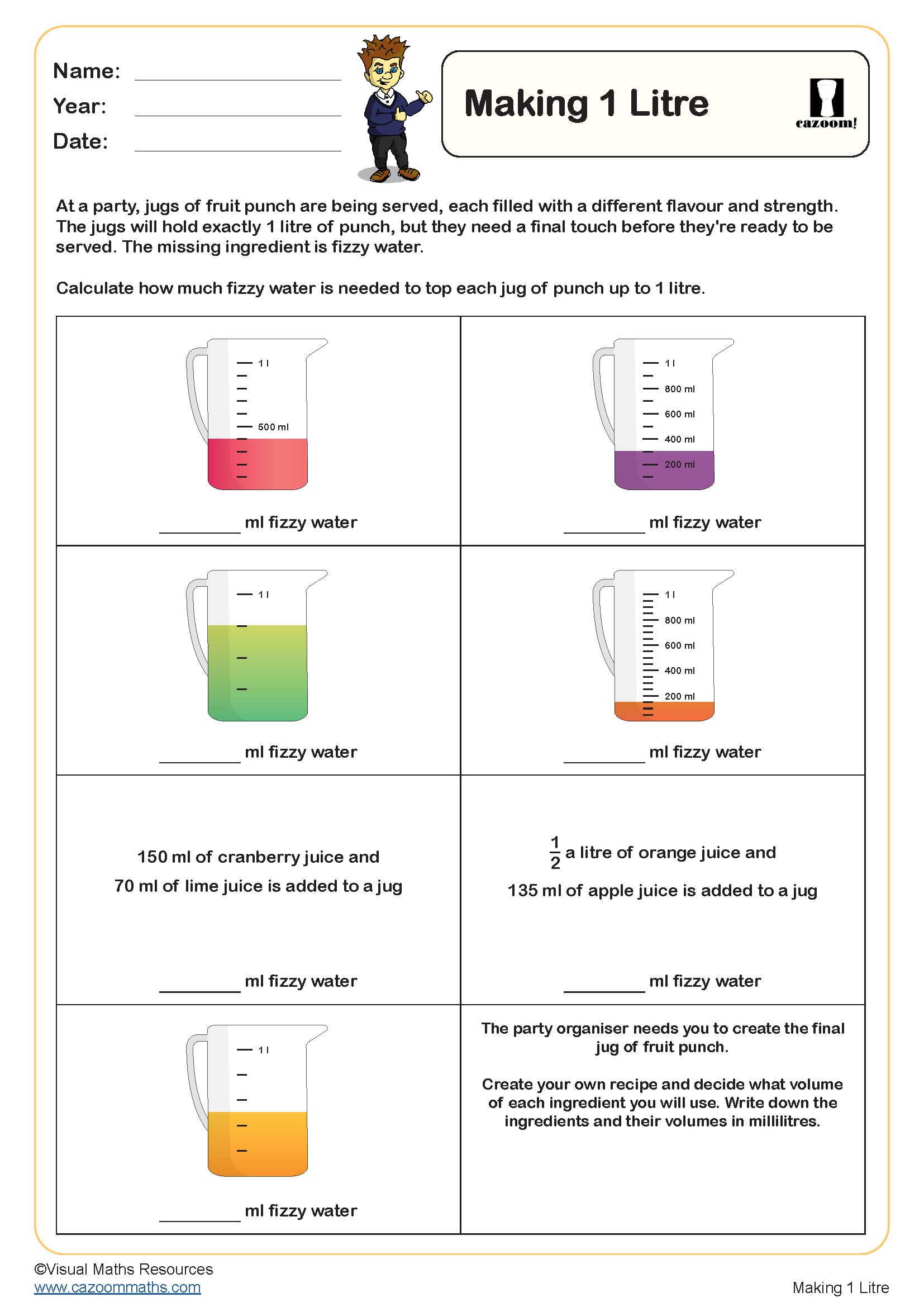
Measure Mass - in Grams (B)
Year groups: 3
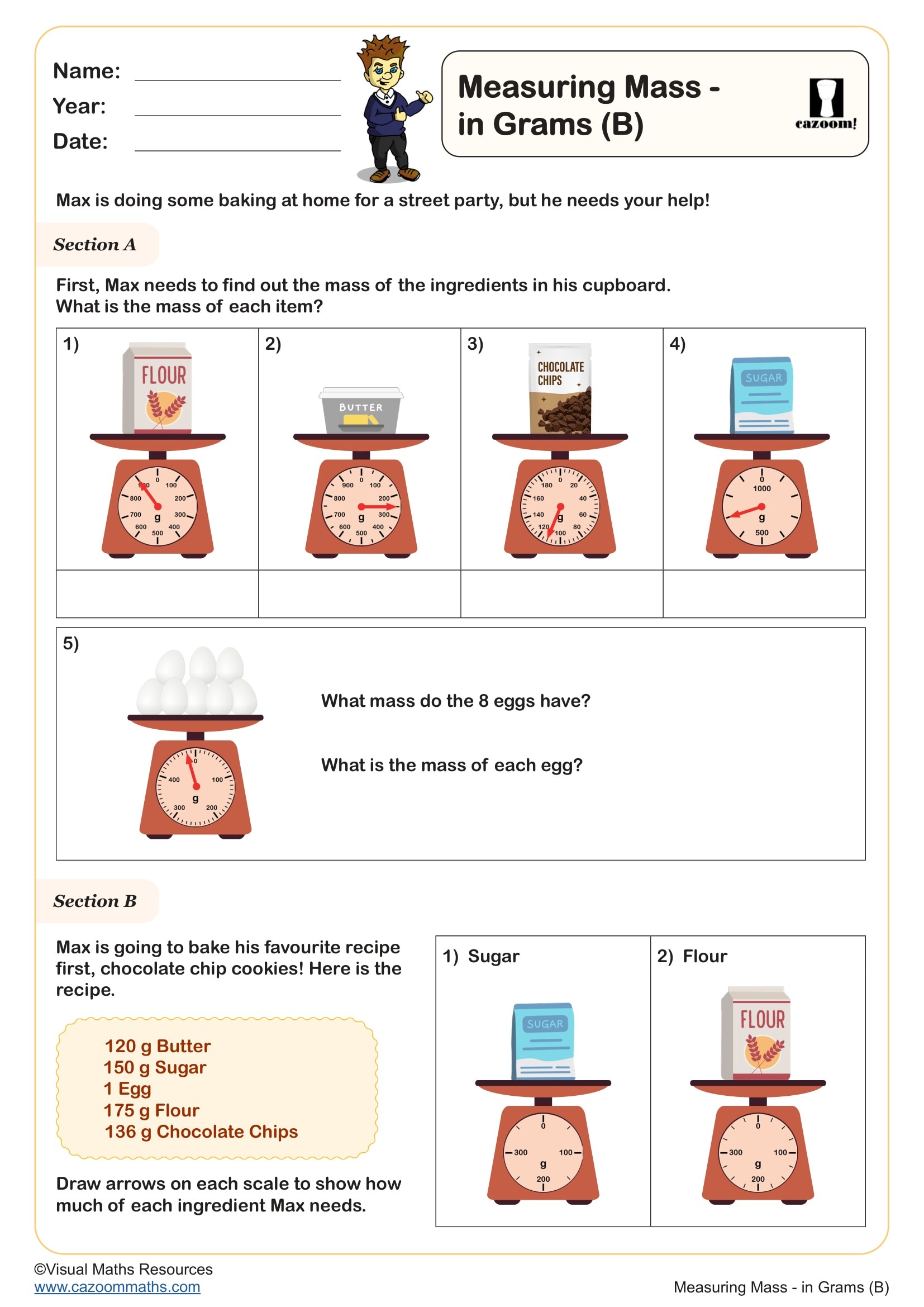
Measure Mass in Kilograms and Grams
Year groups: 3
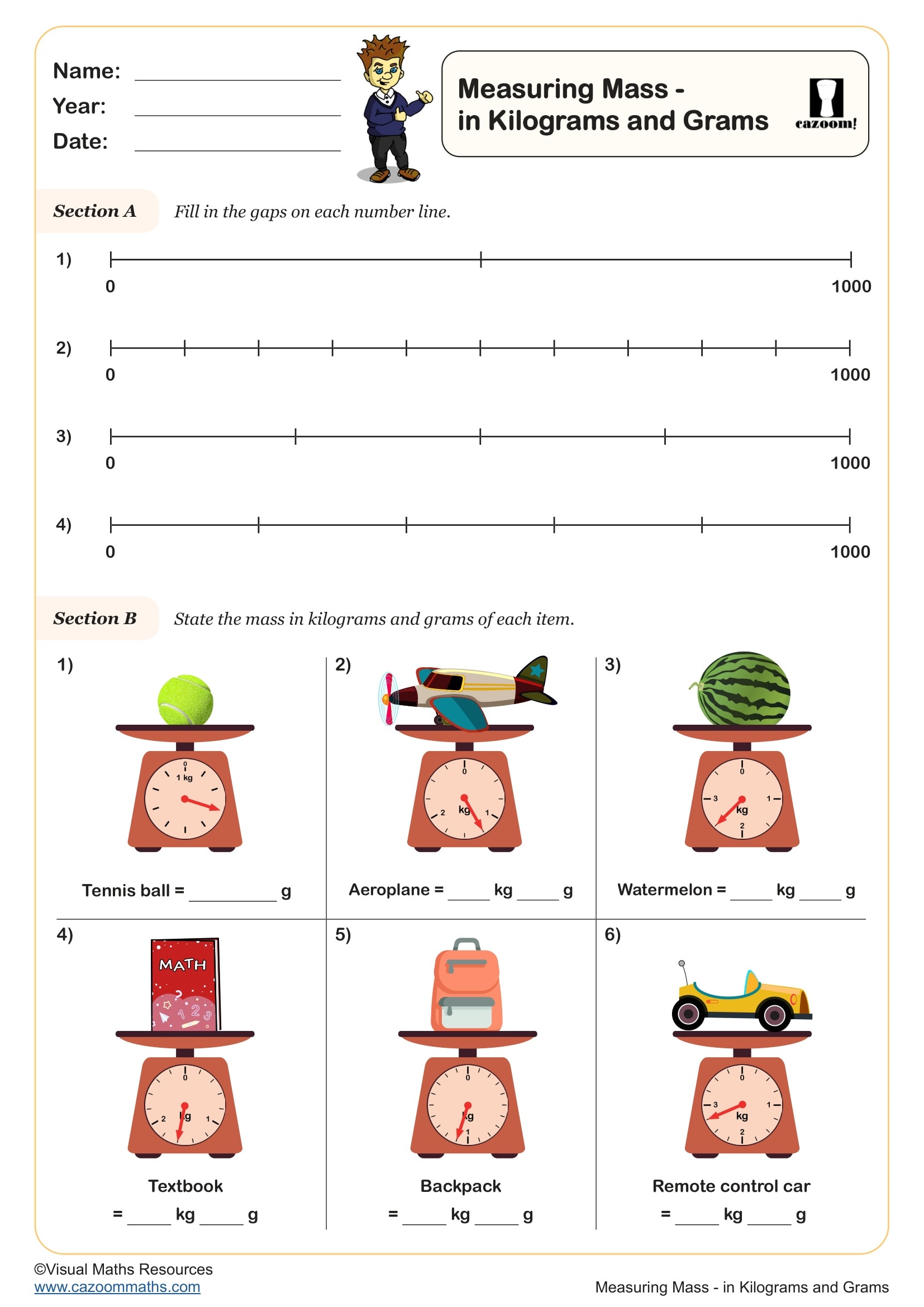
Measure Straight Lines (B)
Year groups: 3
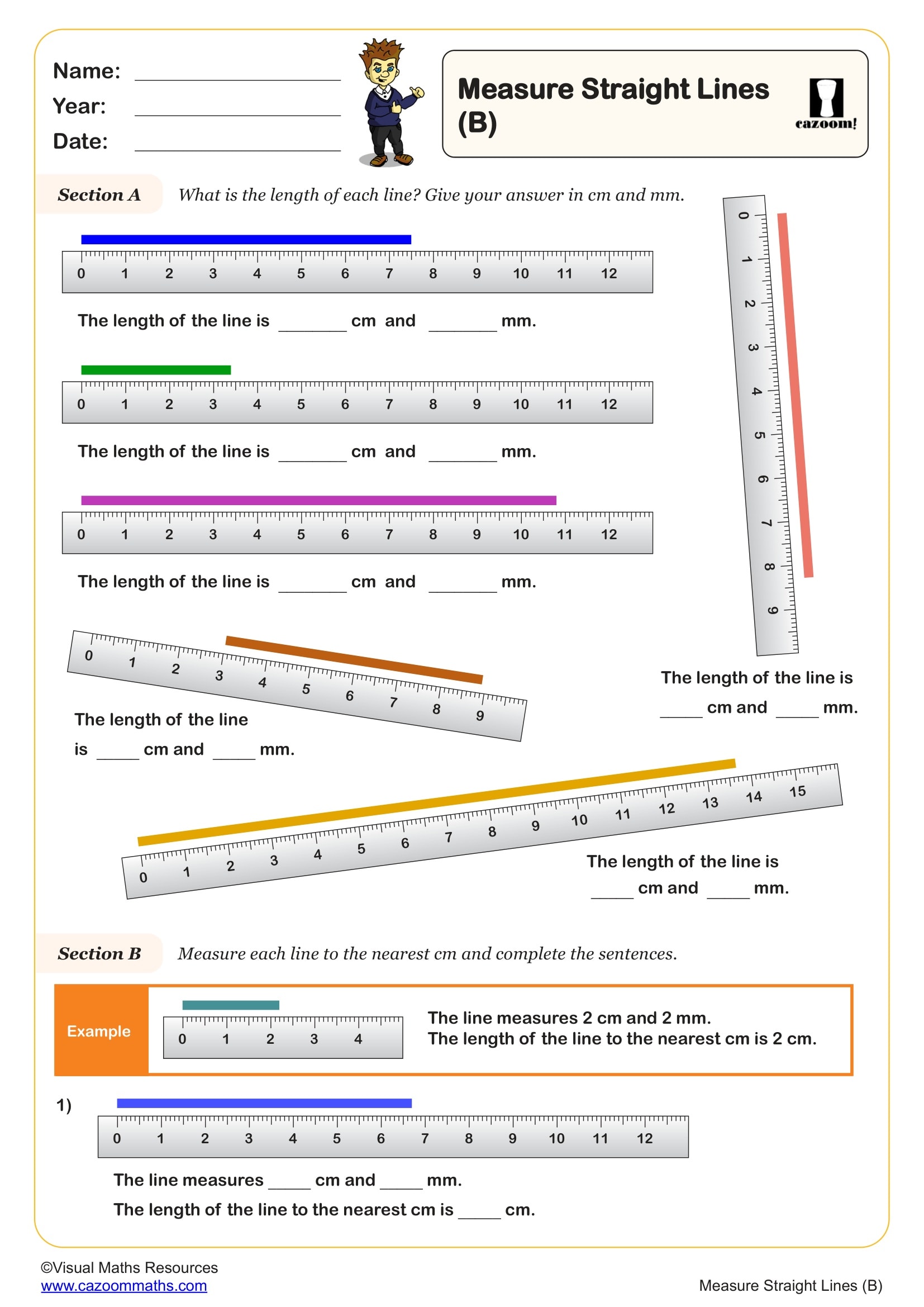
Using Metric Units (A)
Year groups: 3
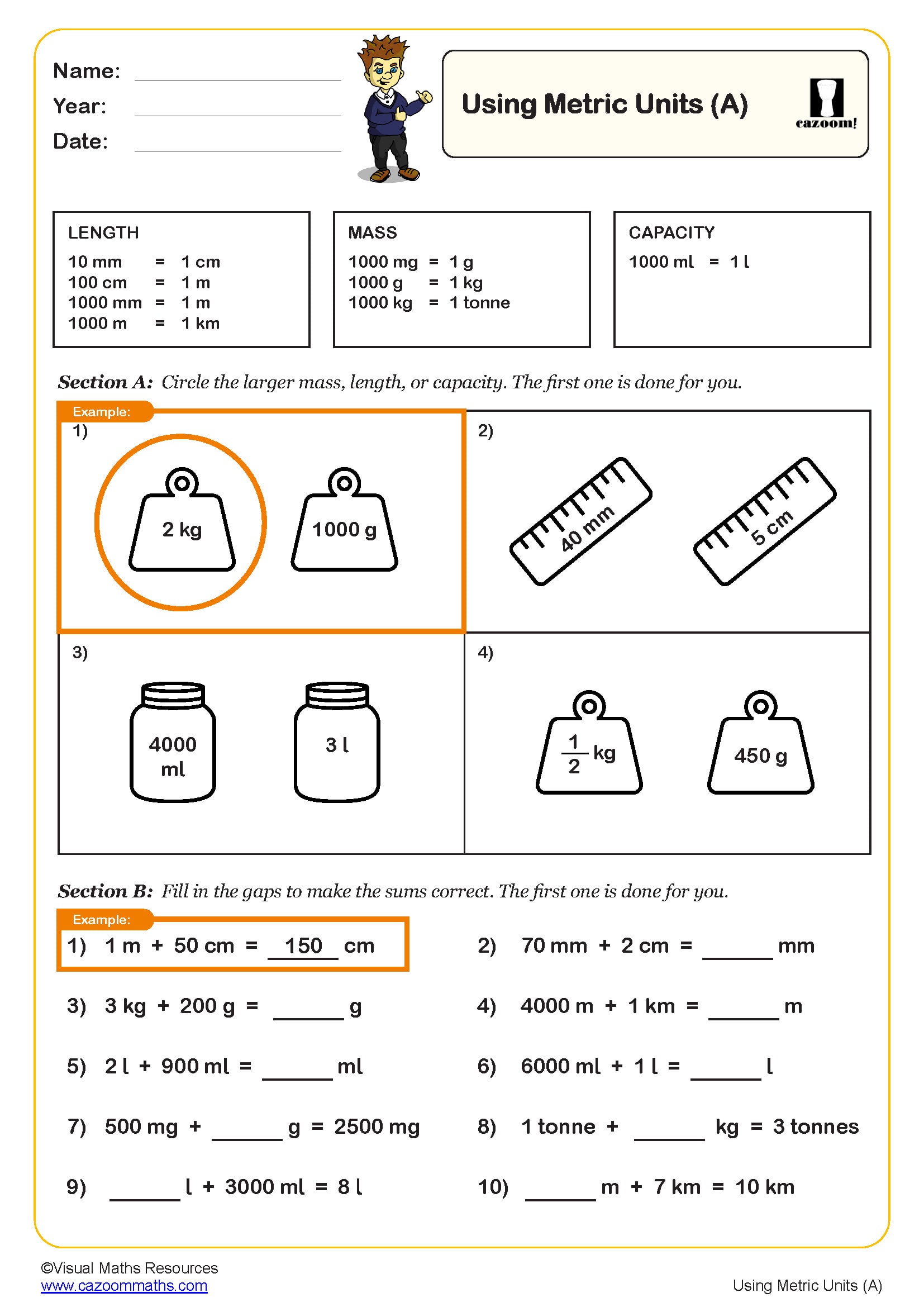
Using Metric Units (B)
Year groups: 3
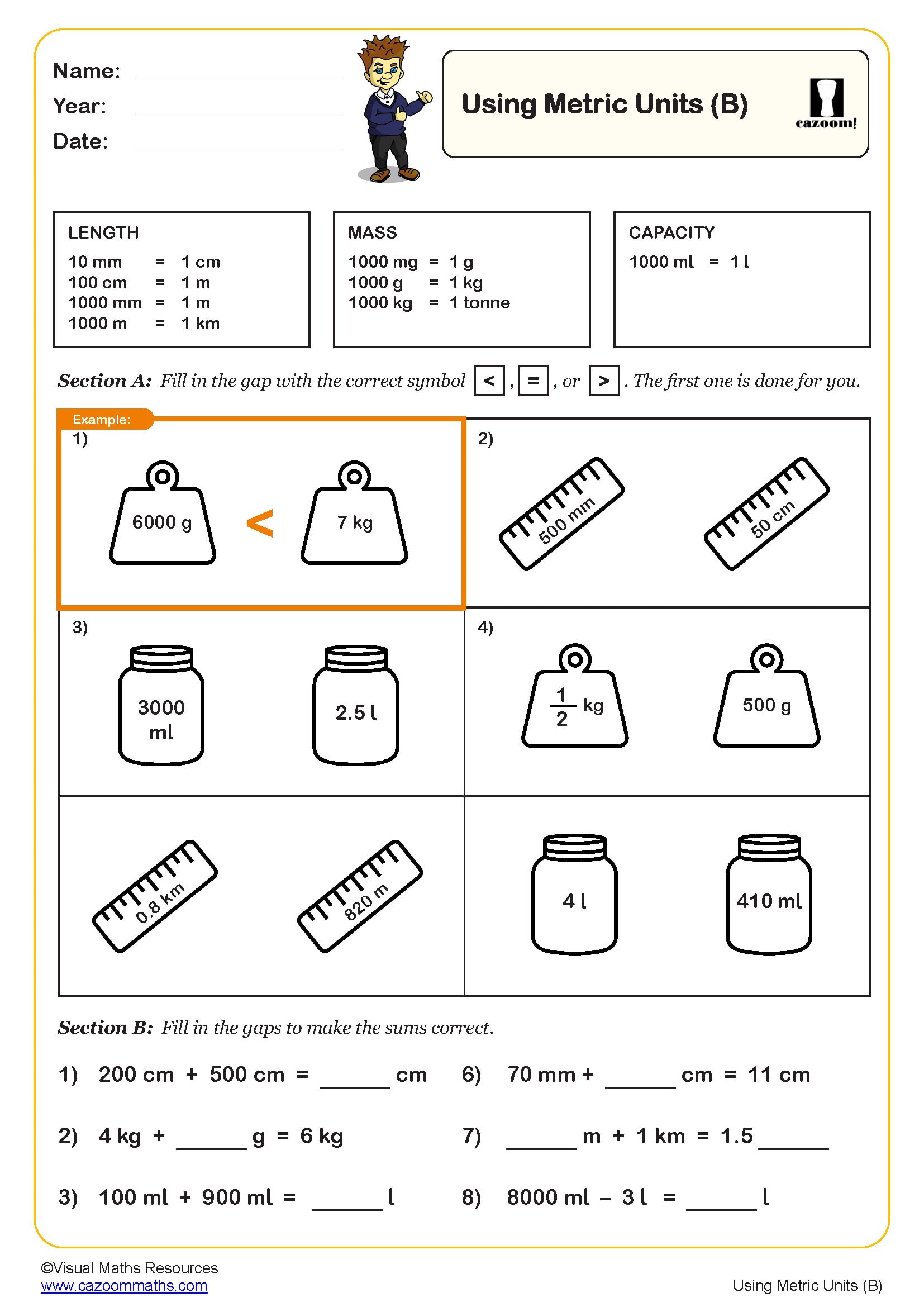
Adding and Subtracting Litres and Millilitres
Year groups: 4
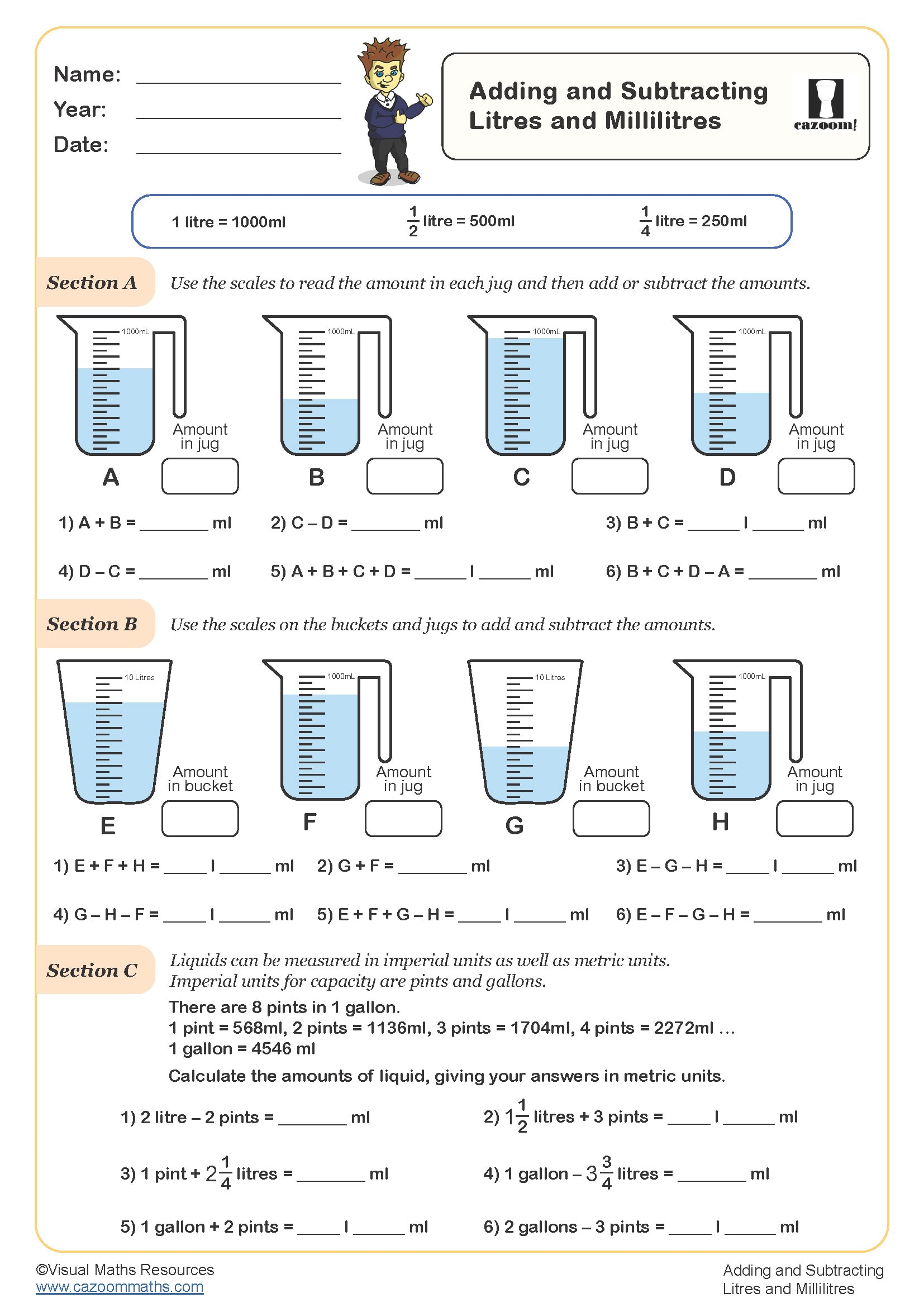
Kilometres and Metres
Year groups: 4
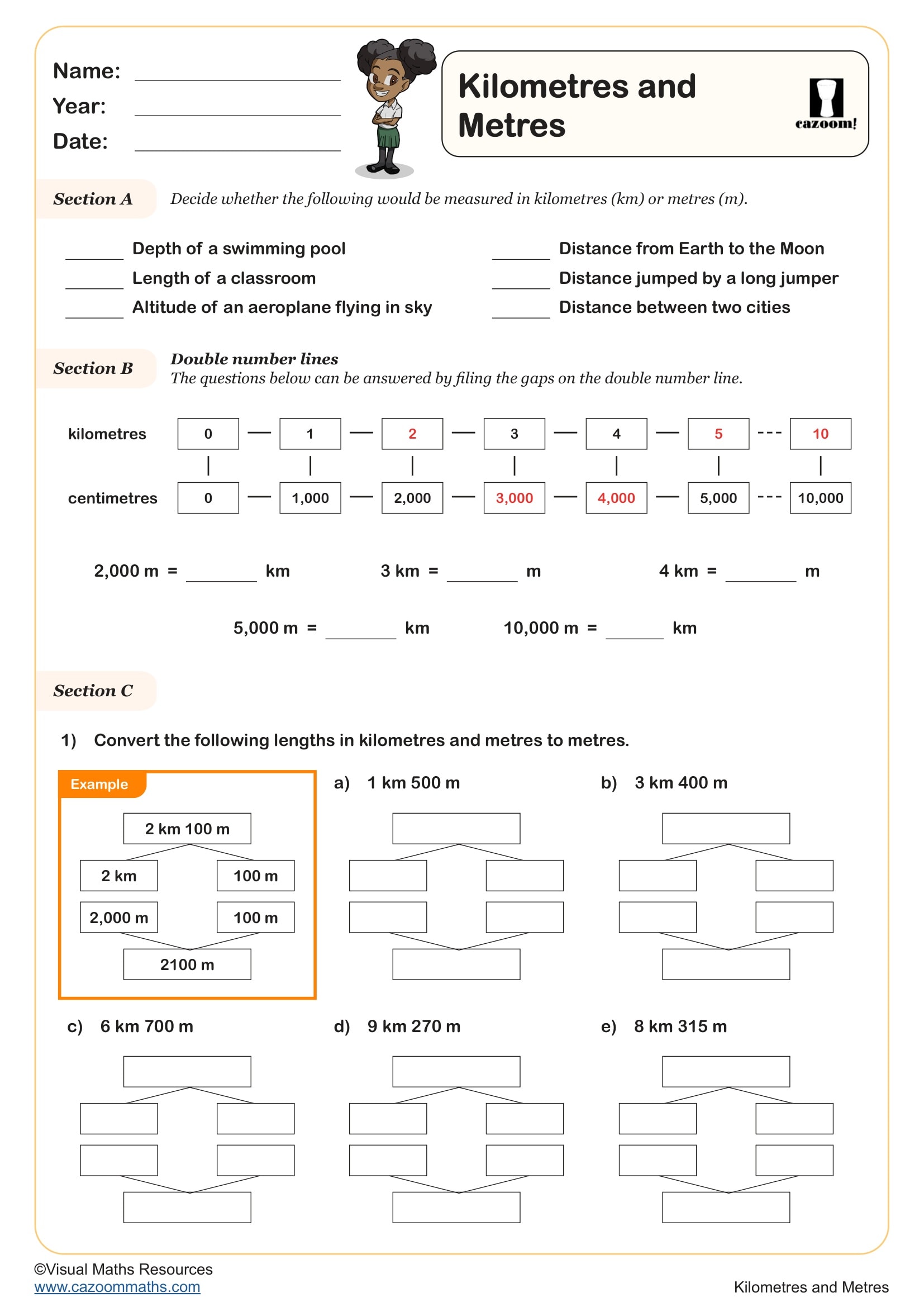
Measuring Perimeter in Millimetres
Year groups: 4
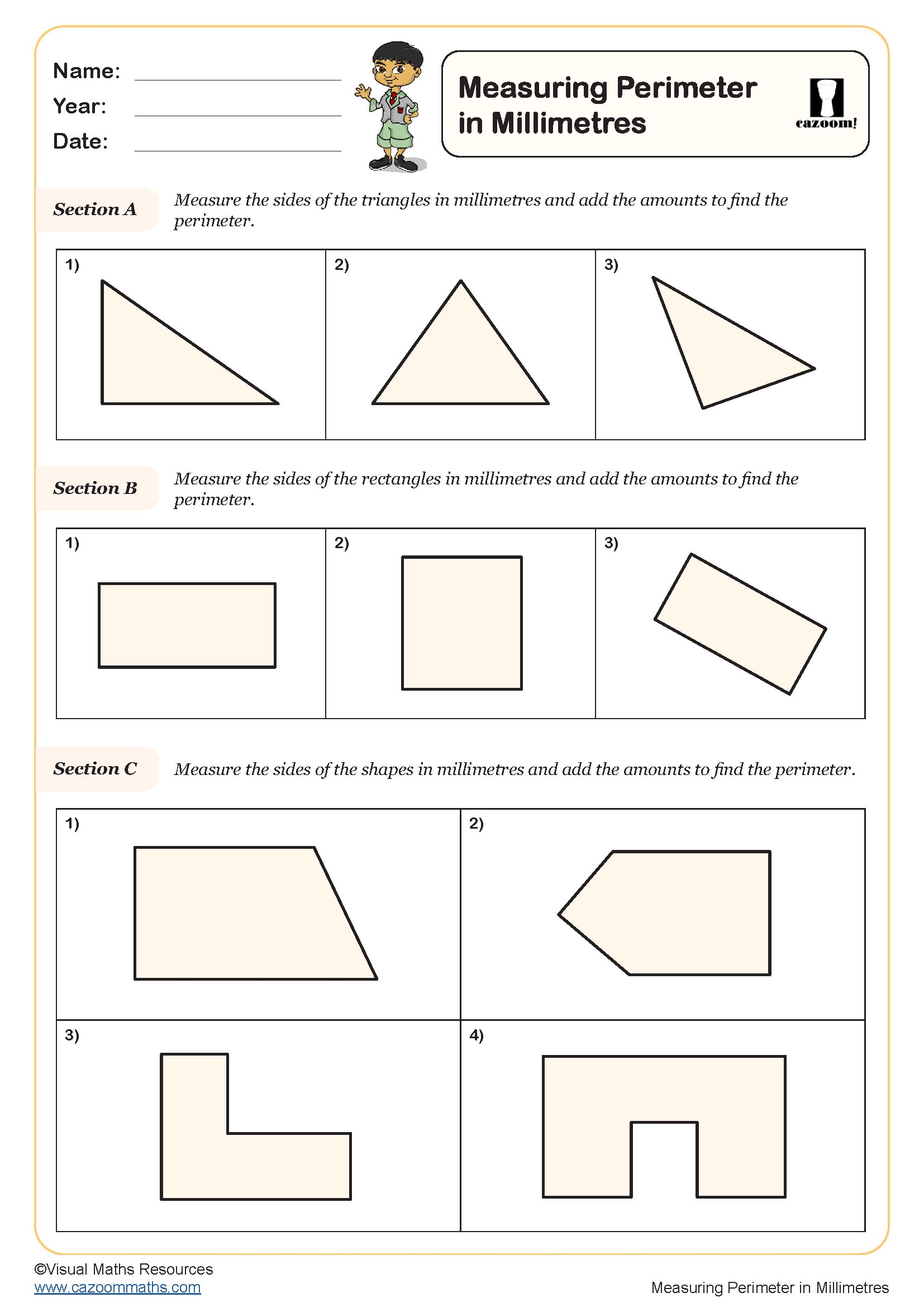
Using Metric Units (C)
Year groups: 4
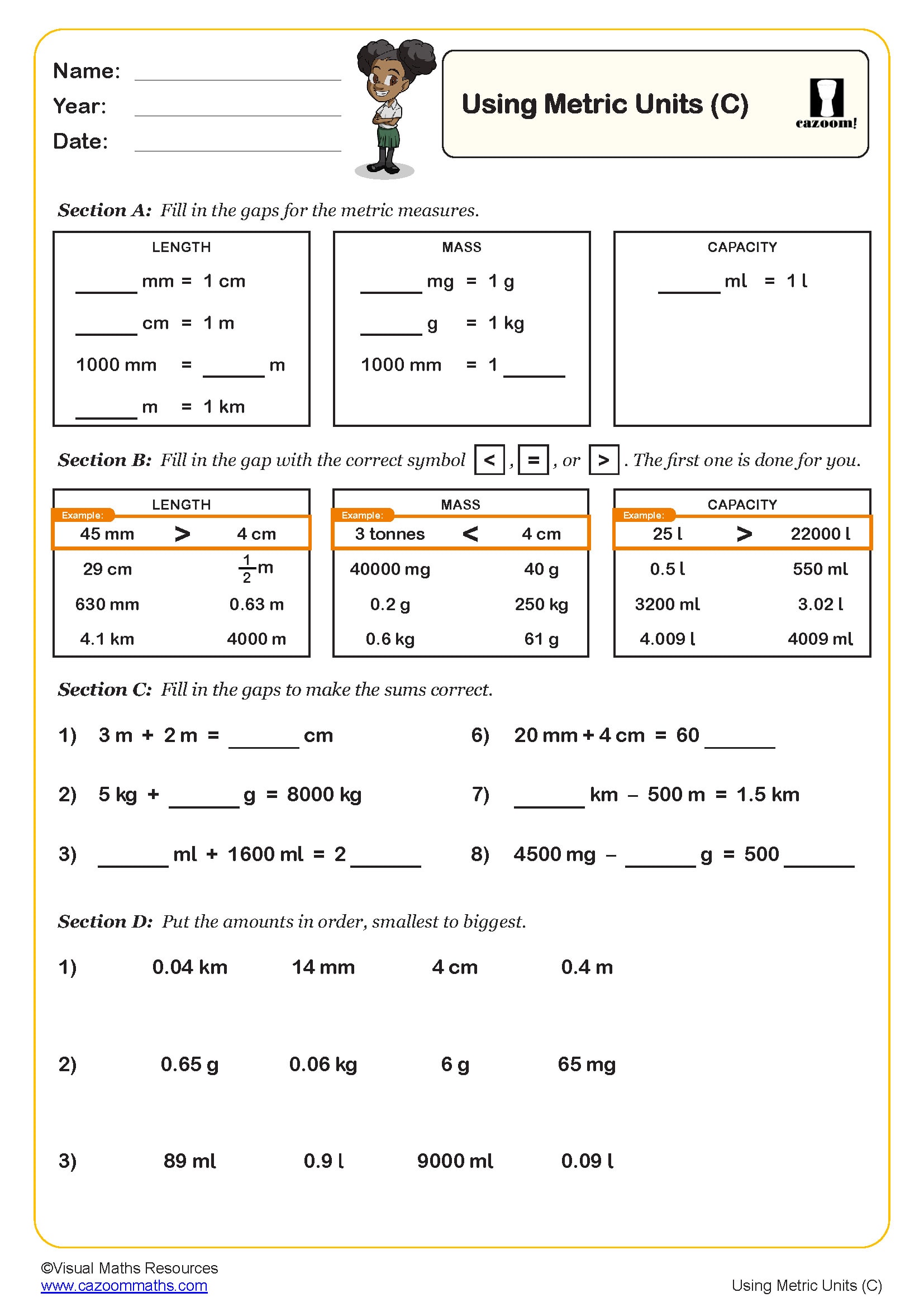
Using Metric Units (D)
Year groups: 4
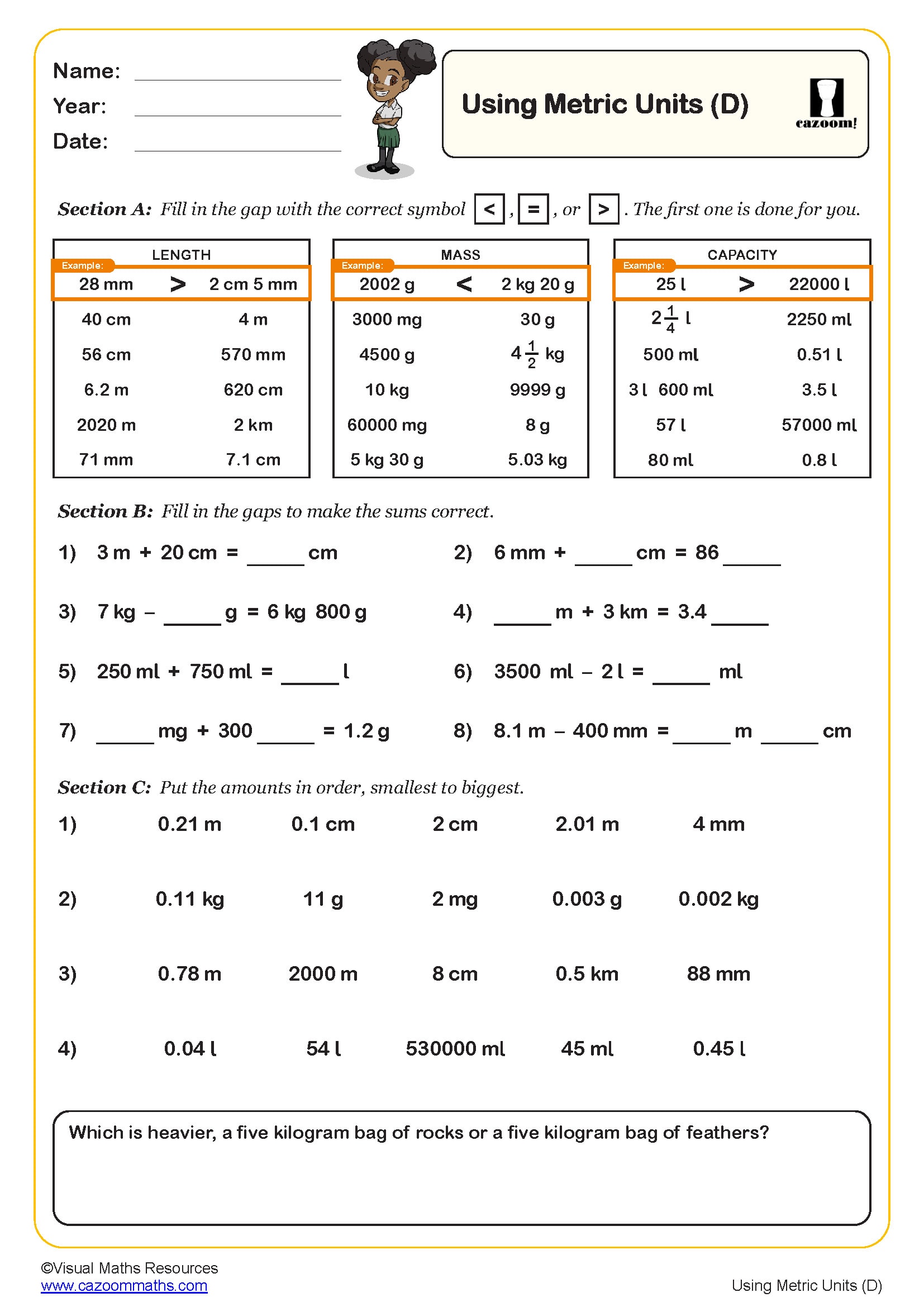
Imperial and Metric Lengths
Year groups: 5
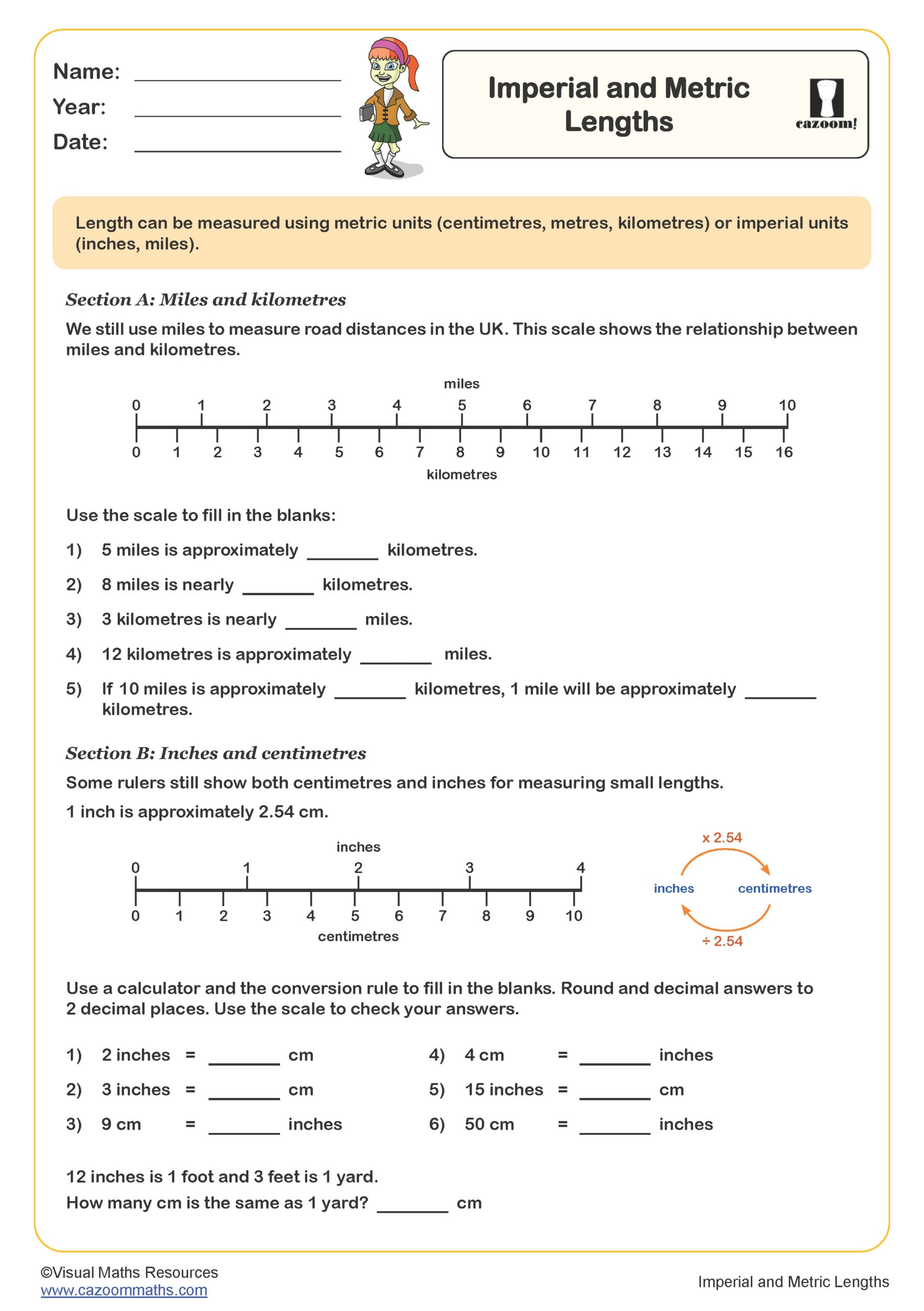
Metric Conversions
Year groups: 5
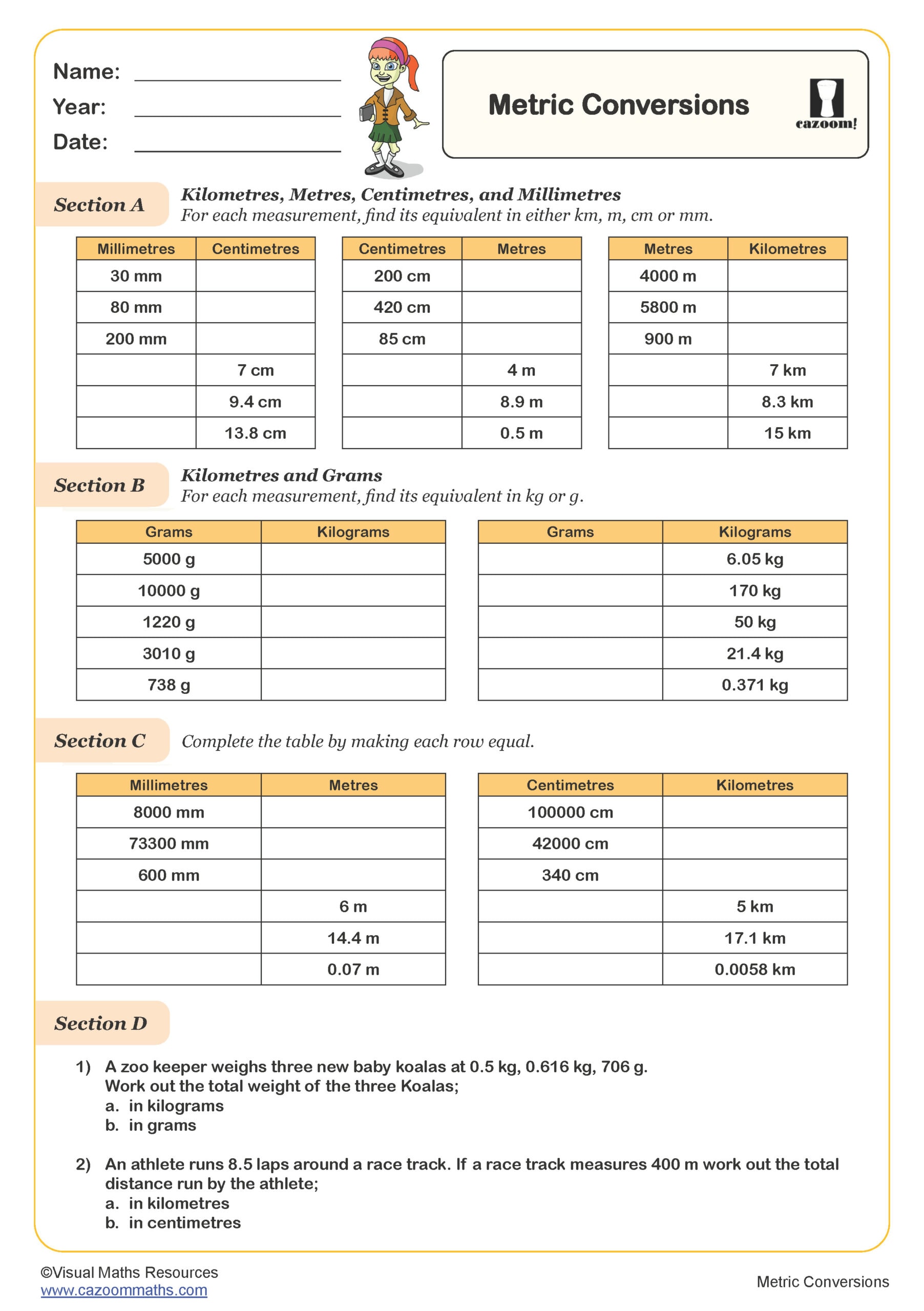
Miles and Kilometres
Year groups: 6
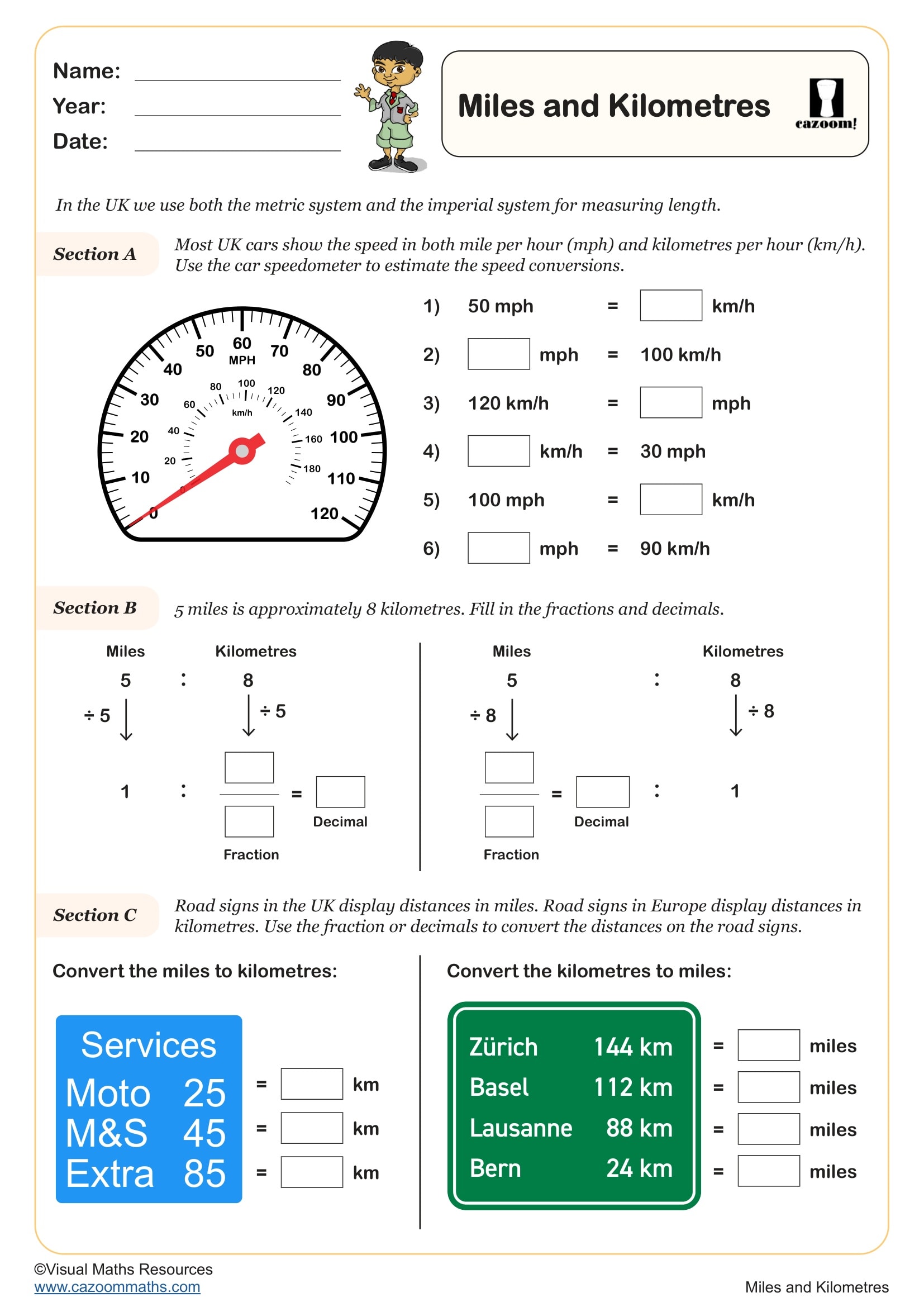
All worksheets are created by the team of experienced teachers at Cazoom Maths.
PRINTABLE MEASUREMENT WORKSHEETS PDF WITH ANSWERS
Check our downloadable Measurement and measurement Converting worksheets in PDF which will help young learners improve their knowledge of the metric systems, length units, comparing mass, concepts of inches and centimetres, imperial units, and measuring length. They will also be able to learn all about converting units, measuring mass, measuring volume, estimating metric measures, and converting metric units. These worksheets are created in easy-to-download PDF format, include answers, and are designed to help young learners better understand and practice their mathematical skills related to measurements. These are excellent resources that will make the learning process fun and interesting!
What Is Measurement?
Measurement is the process of determining the size, length, volume, area, or other attributes of objects or events. Imagine you’re baking a cake: you’d need to know how much flour, sugar, or milk to use, which involves measuring these ingredients. Or consider buying a new bookshelf for your room – you’d measure the space to ensure it fits perfectly. Measurement helps us quantify the world around us, using standard units like metres for length, kilograms for weight, or litres for volume. By consistently using these units, we can compare, understand, and communicate sizes and quantities, making daily tasks and decisions clearer and more precise.
Understanding The Concept Of Measurement
At the end of the day, measurement is all about putting a value on the properties of things. It’s like giving an object a number label. For example, if you say a ribbon is 30 centimetres long, you’re using the standard unit so that everyone knows how to measure it. This system makes sure that we all have the same understanding. Whether you’re finding out how heavy fruit is at a market, how much water is in a bottle, or how big your bedroom floor is, you are using measurement. It creates a bridge between numbers and reality.
Importance Of Measurement In Real Life
In our daily lives, measurement is key. It’s what we all rely on to make decisions and perform tasks. When cooking, precise measurements are the difference between a dish that tastes good and one that tastes amazing! The same goes for construction; accurate measurements guarantee safety so buildings stand the test of time. Even when it comes to shopping for clothes, no one wants to buy something that doesn’t fit them. But healthcare is a whole different story— with wrong measurements lives can be put at risk, so it’s absolutely critical to get the measurements right. Nobody likes travelling in chaos or at least I don’t, but without measurements, I’d have no idea where I’m going or how much gas I need to get there. Think about it, without measurement, we’d all just be guessing and hoping we made the right choice.